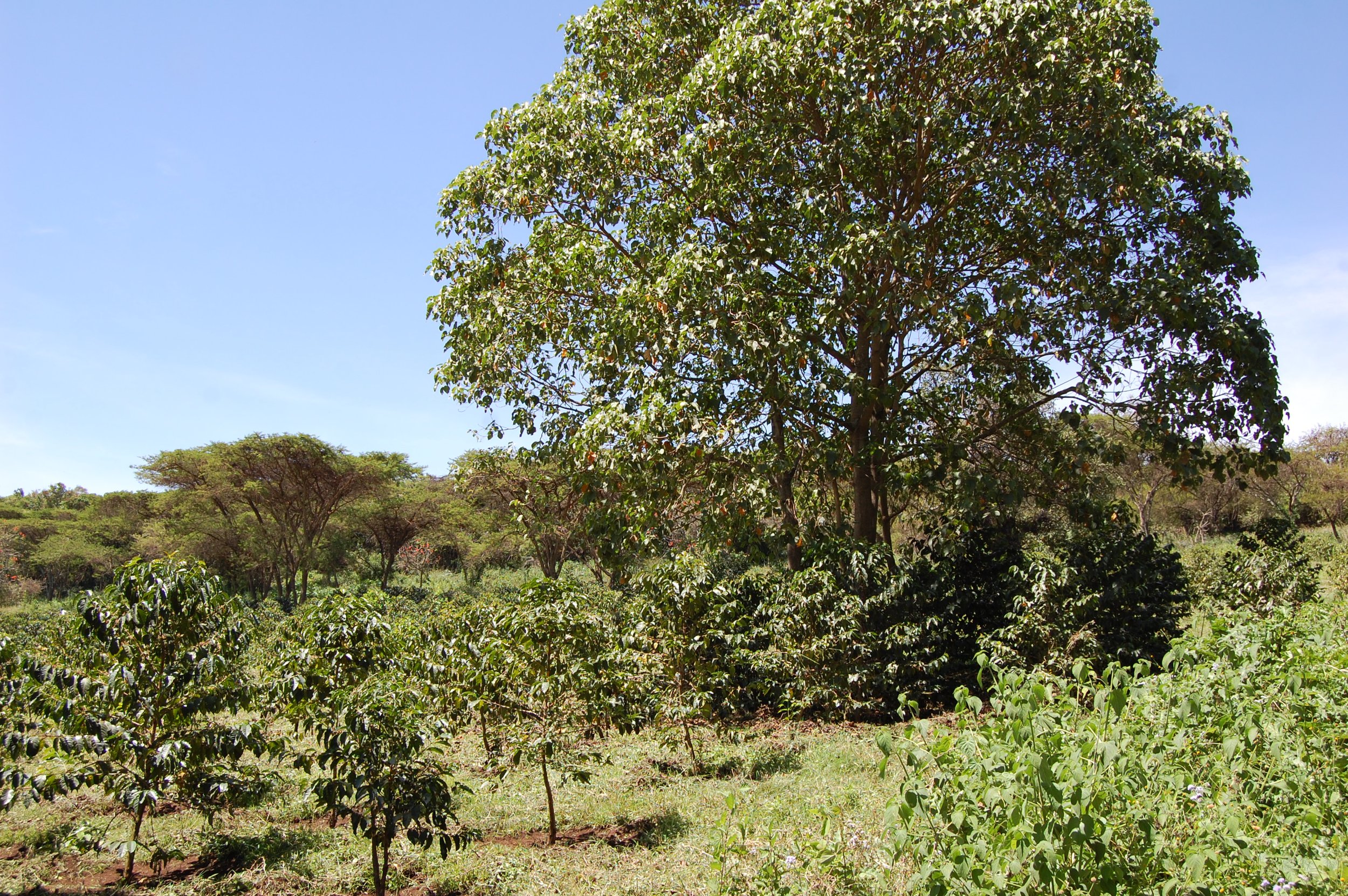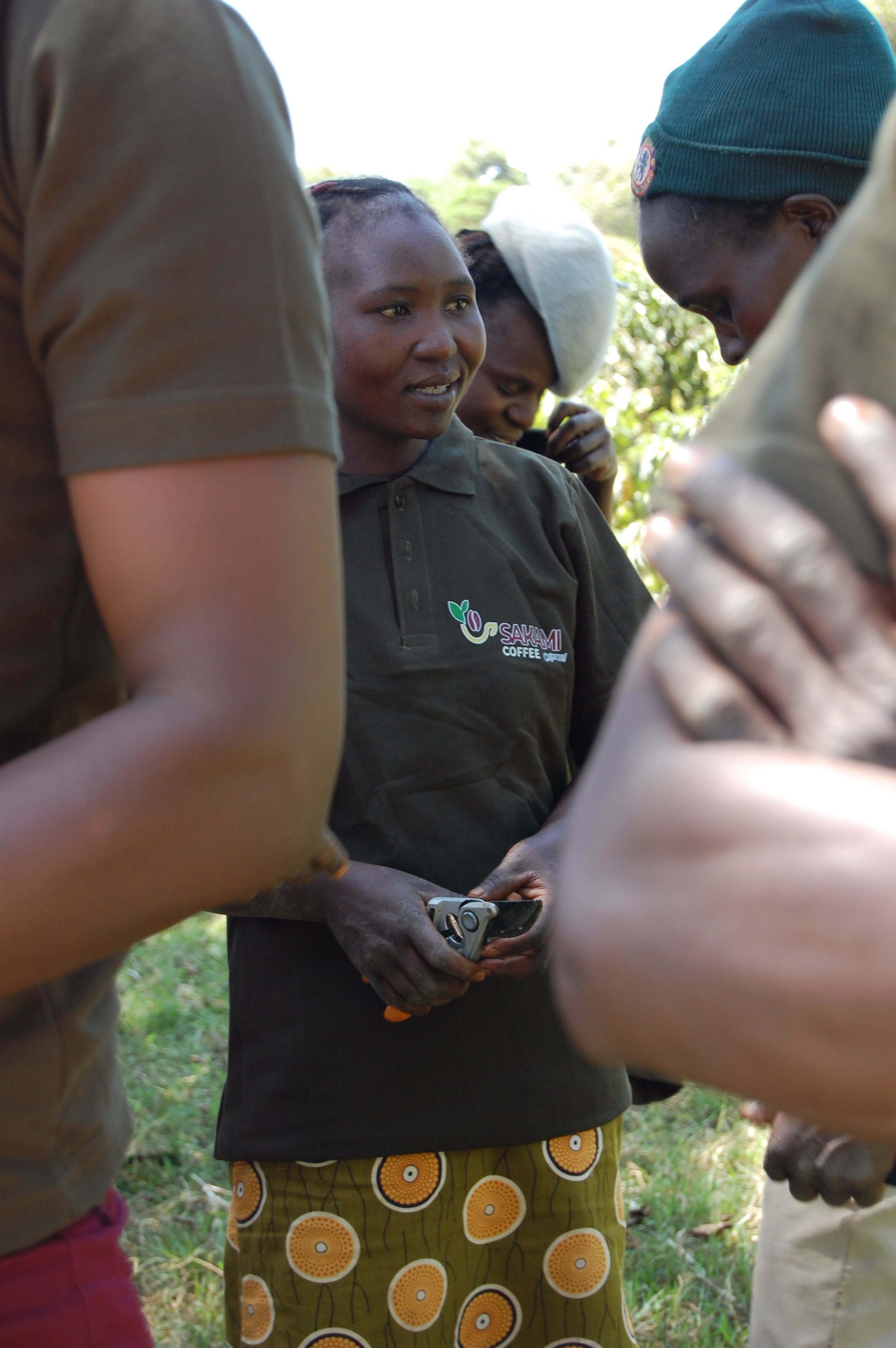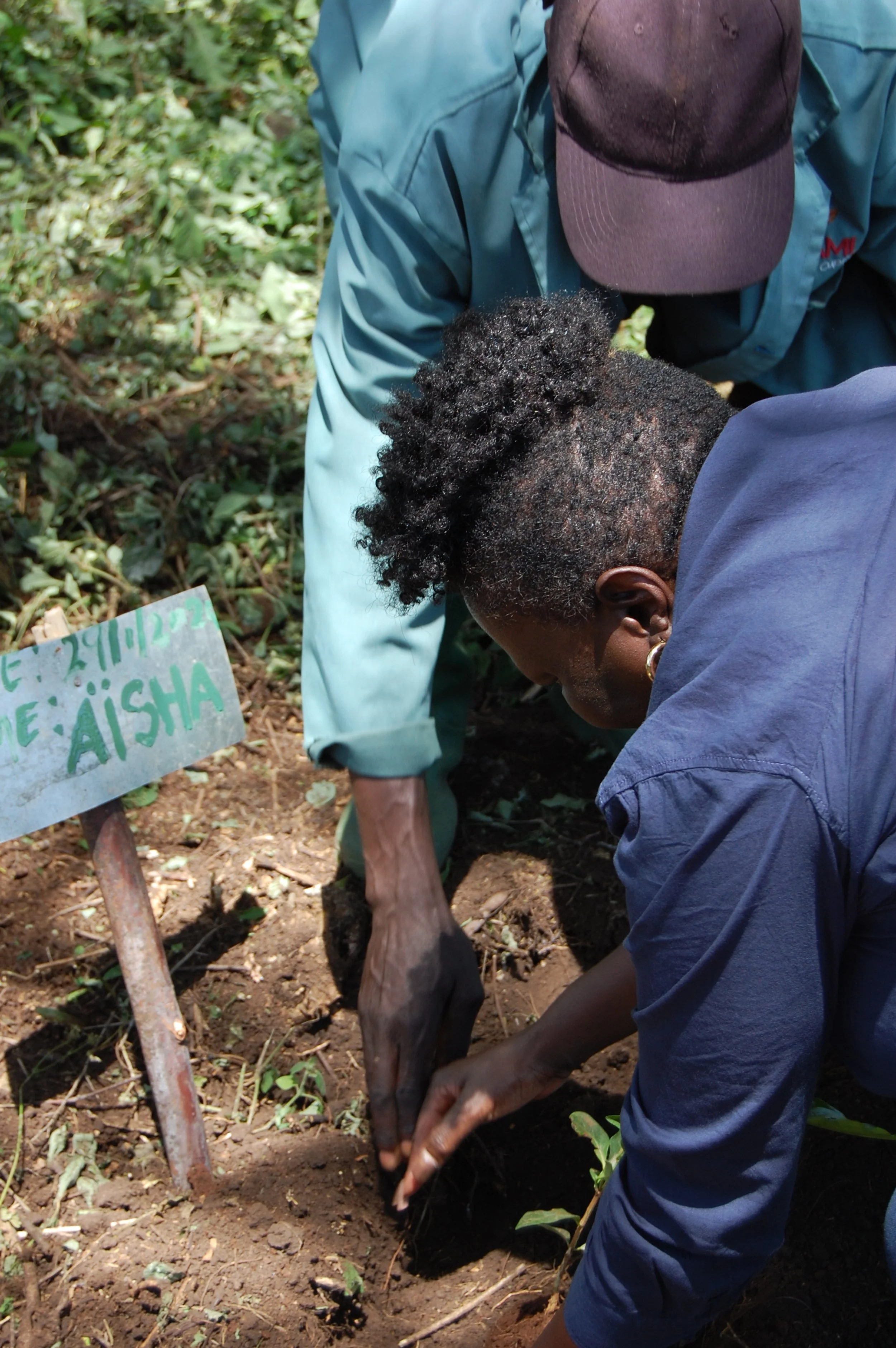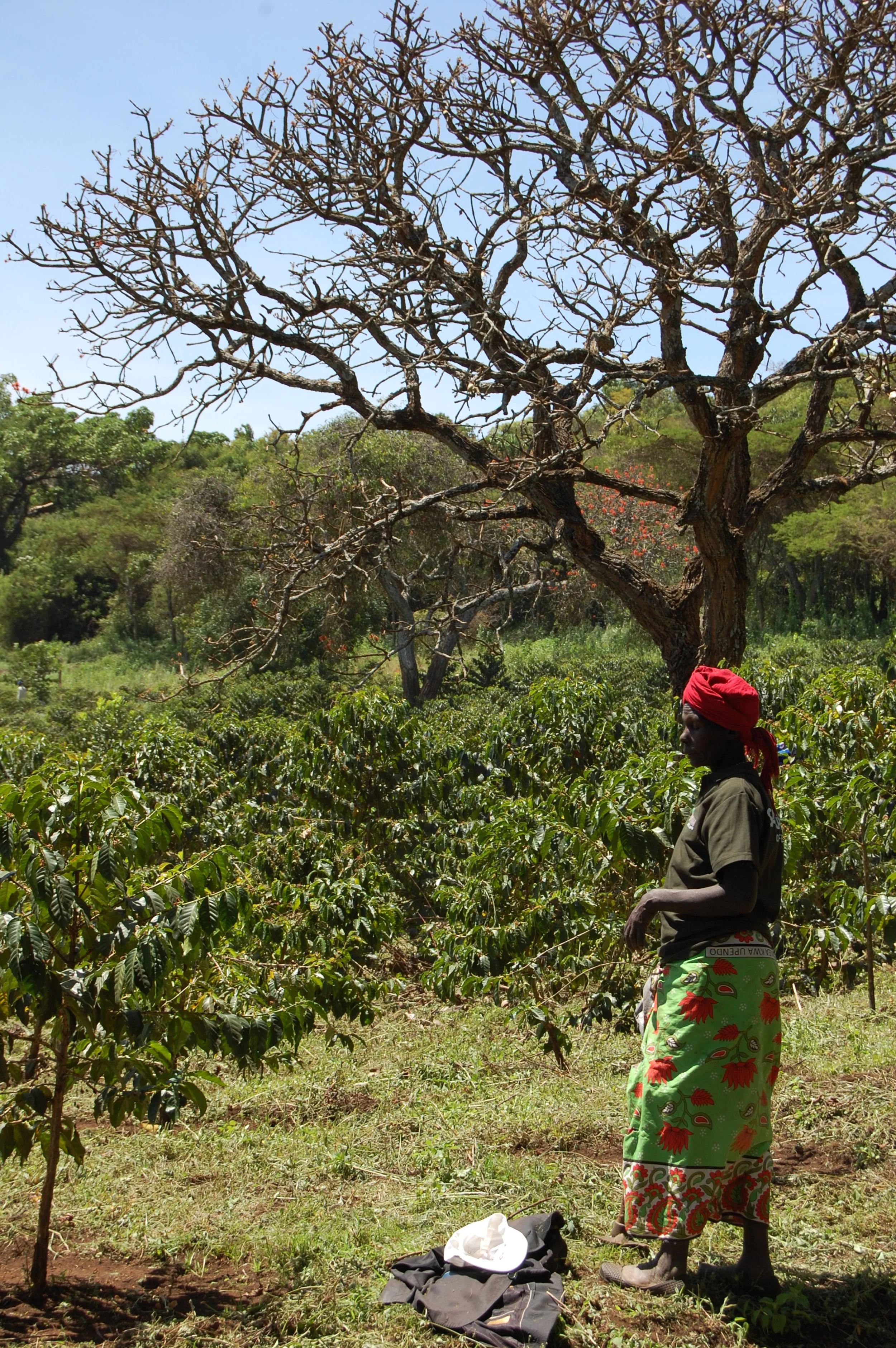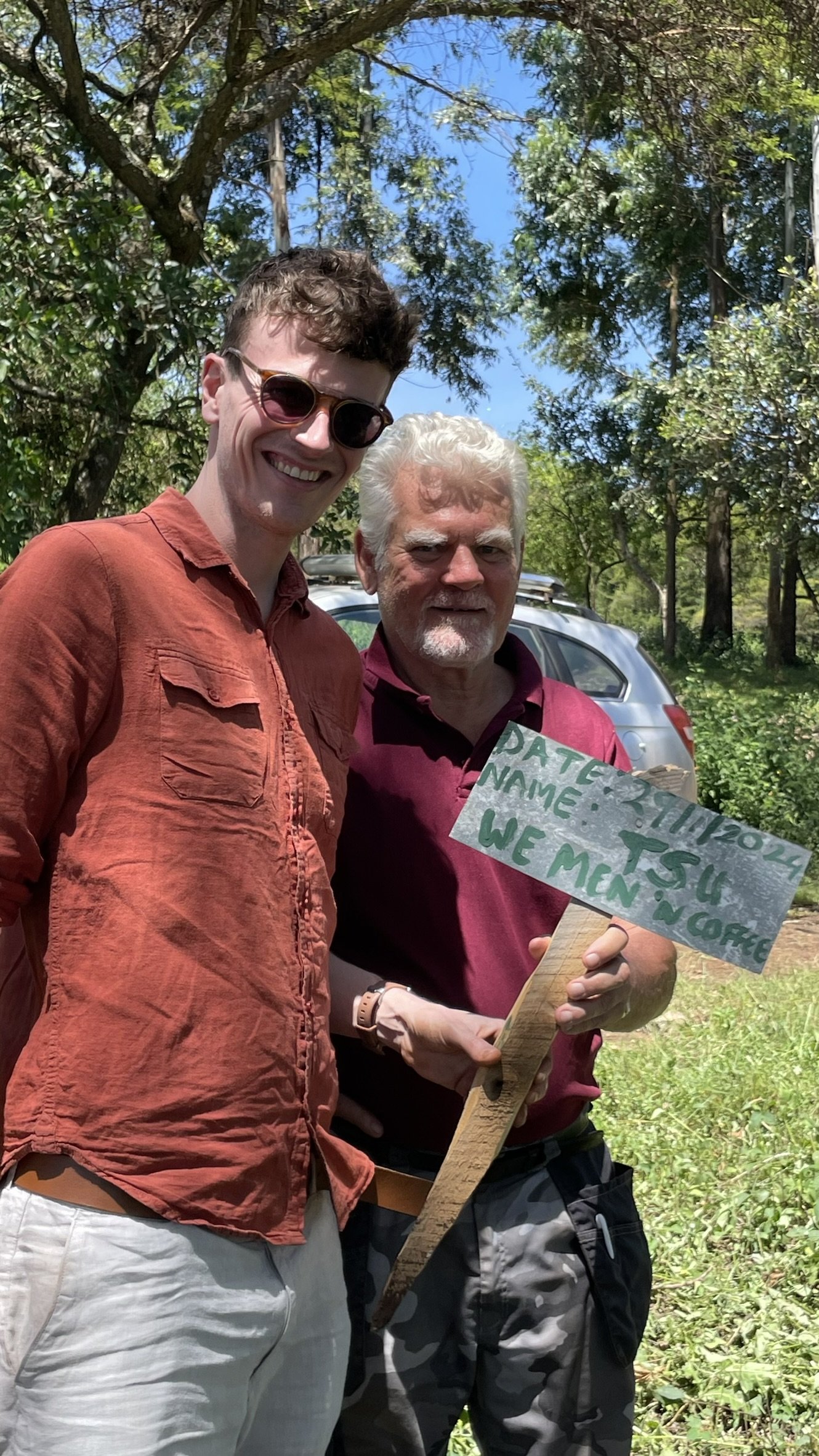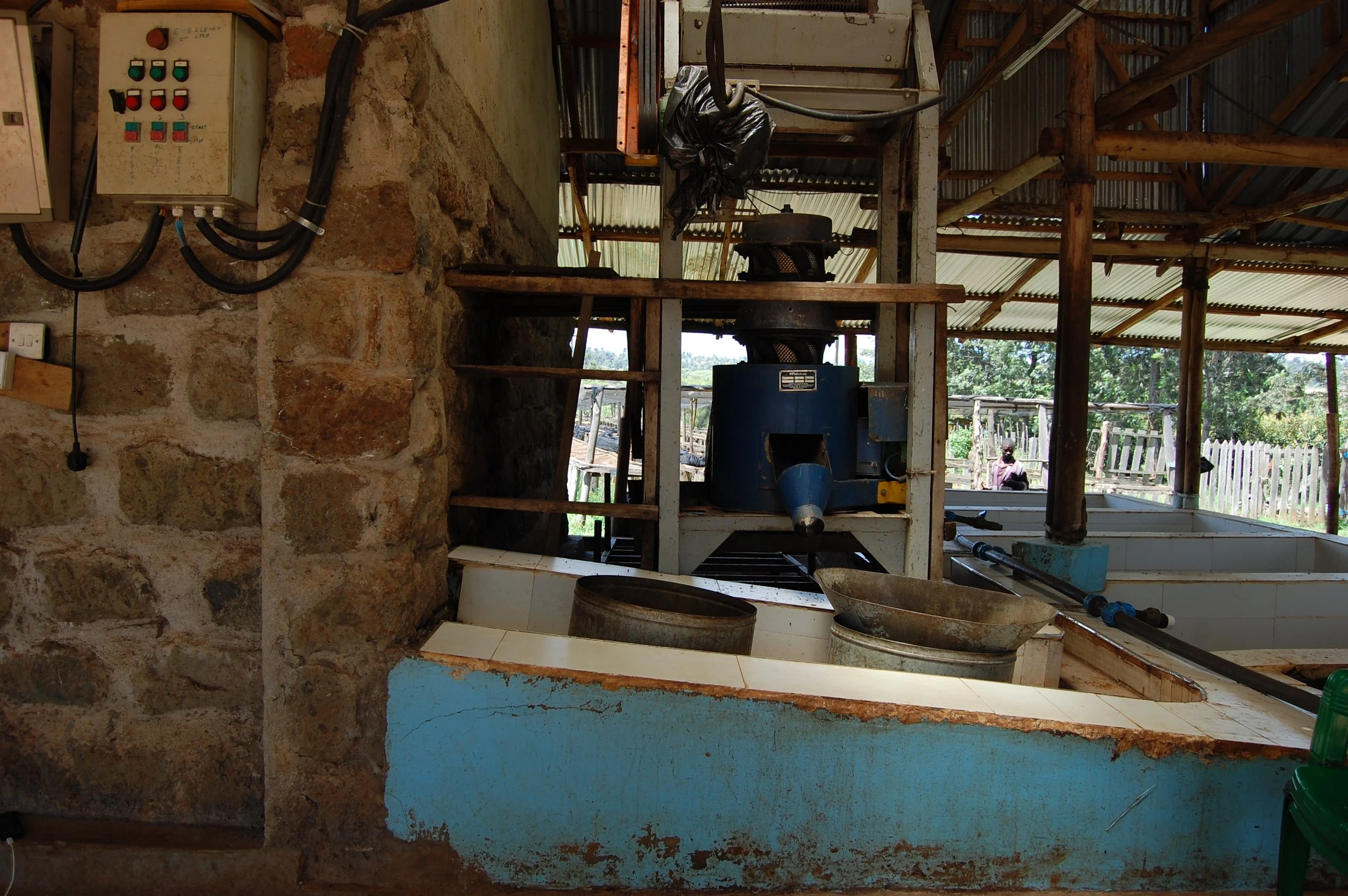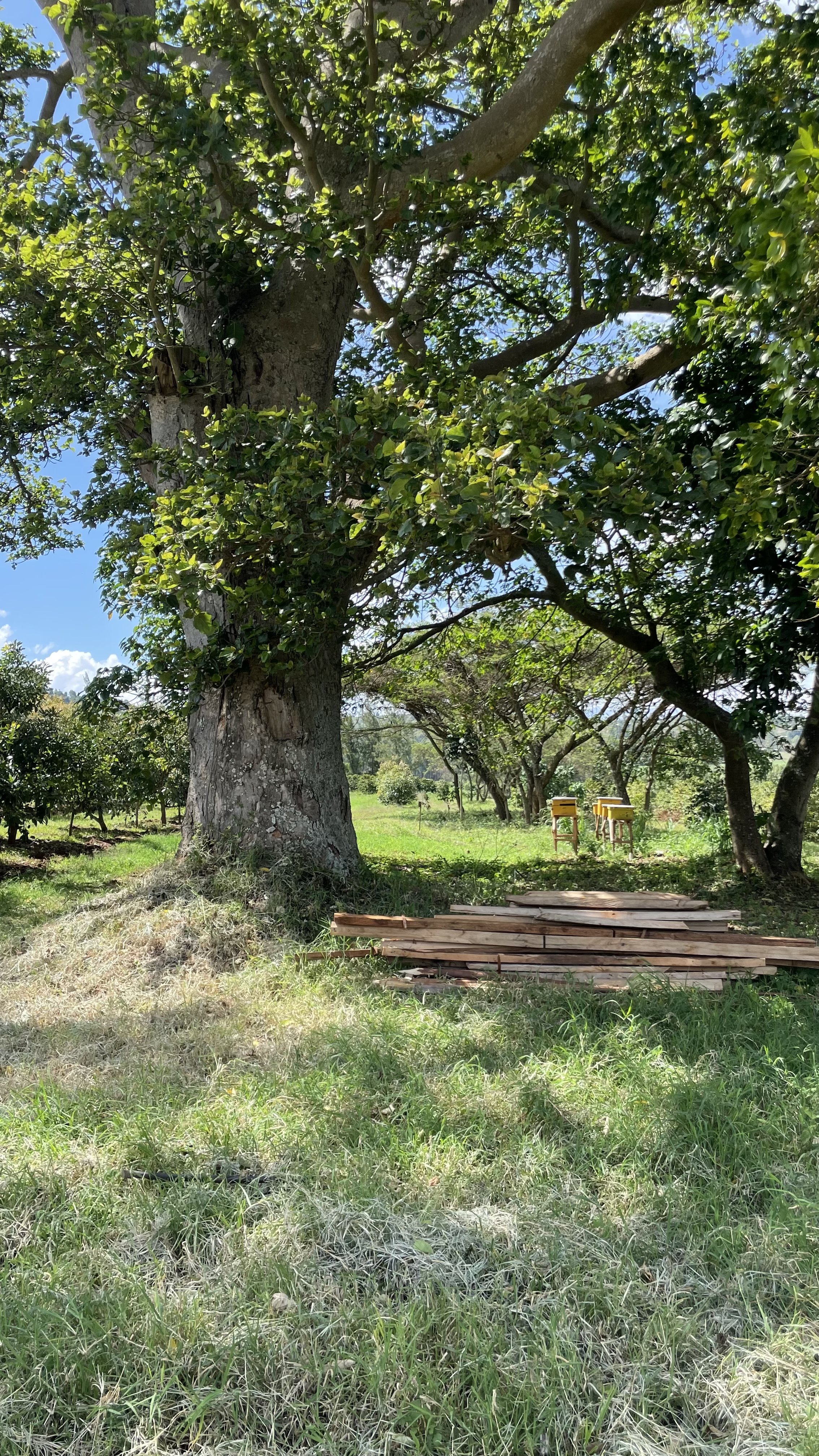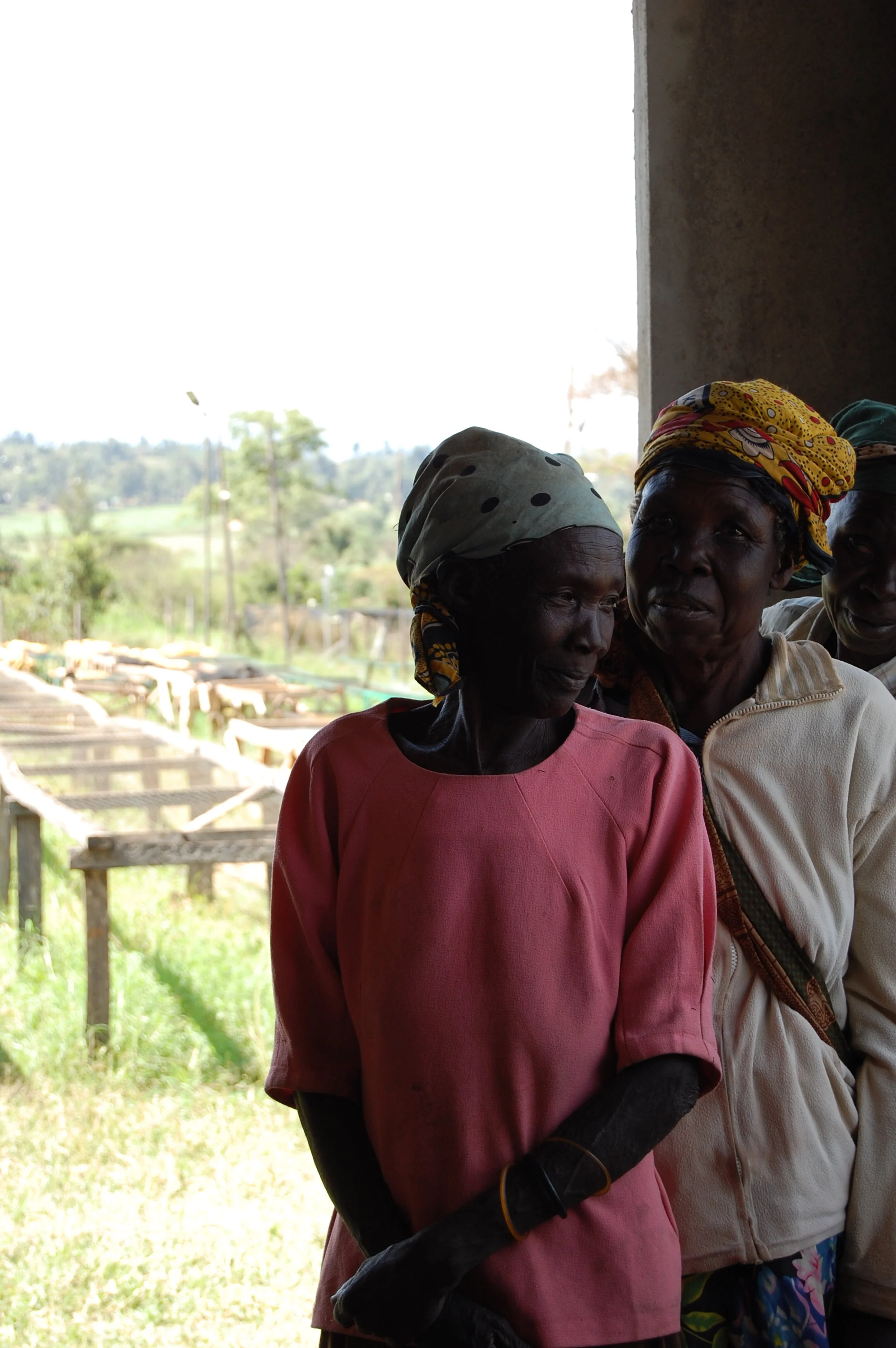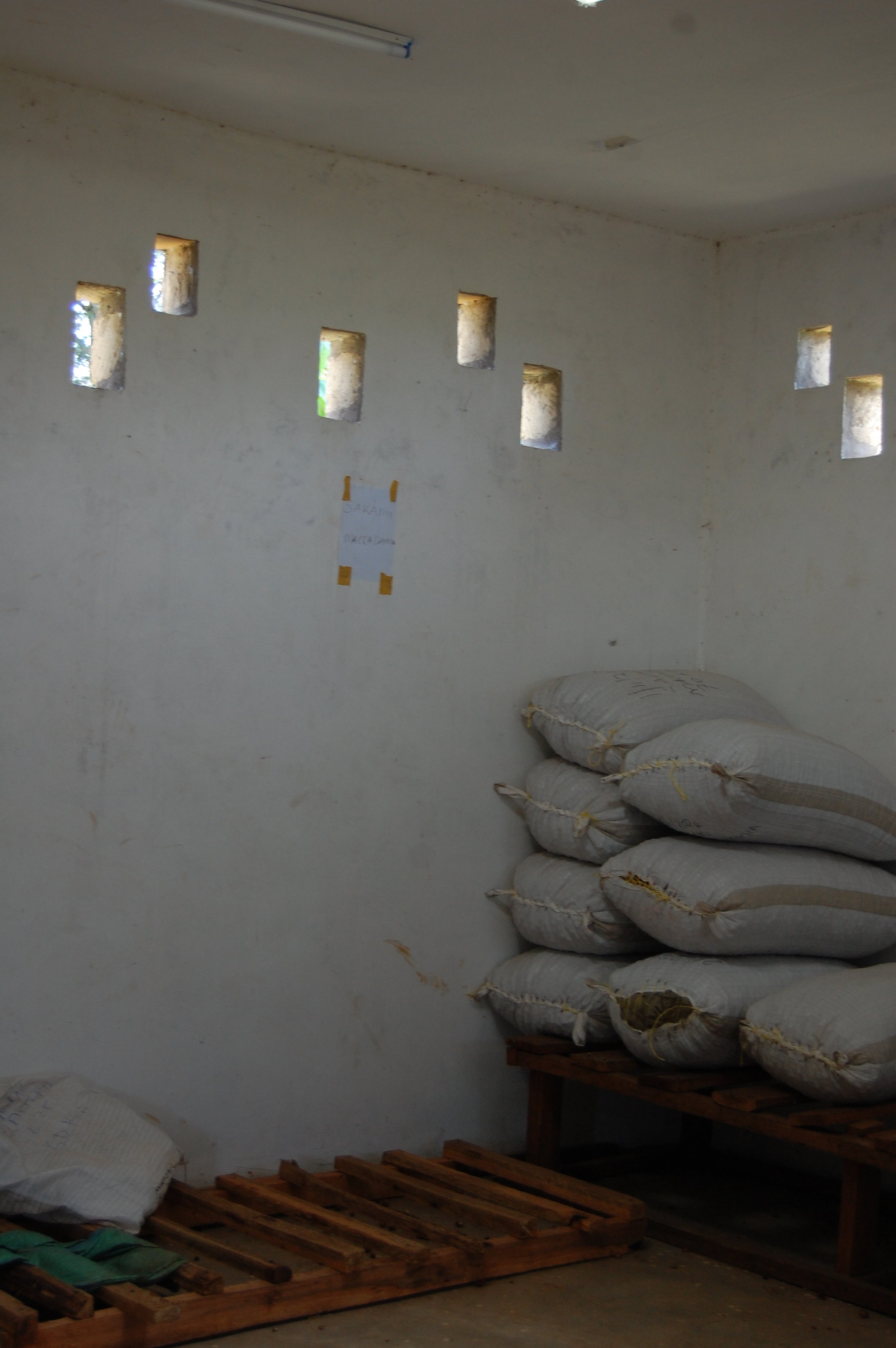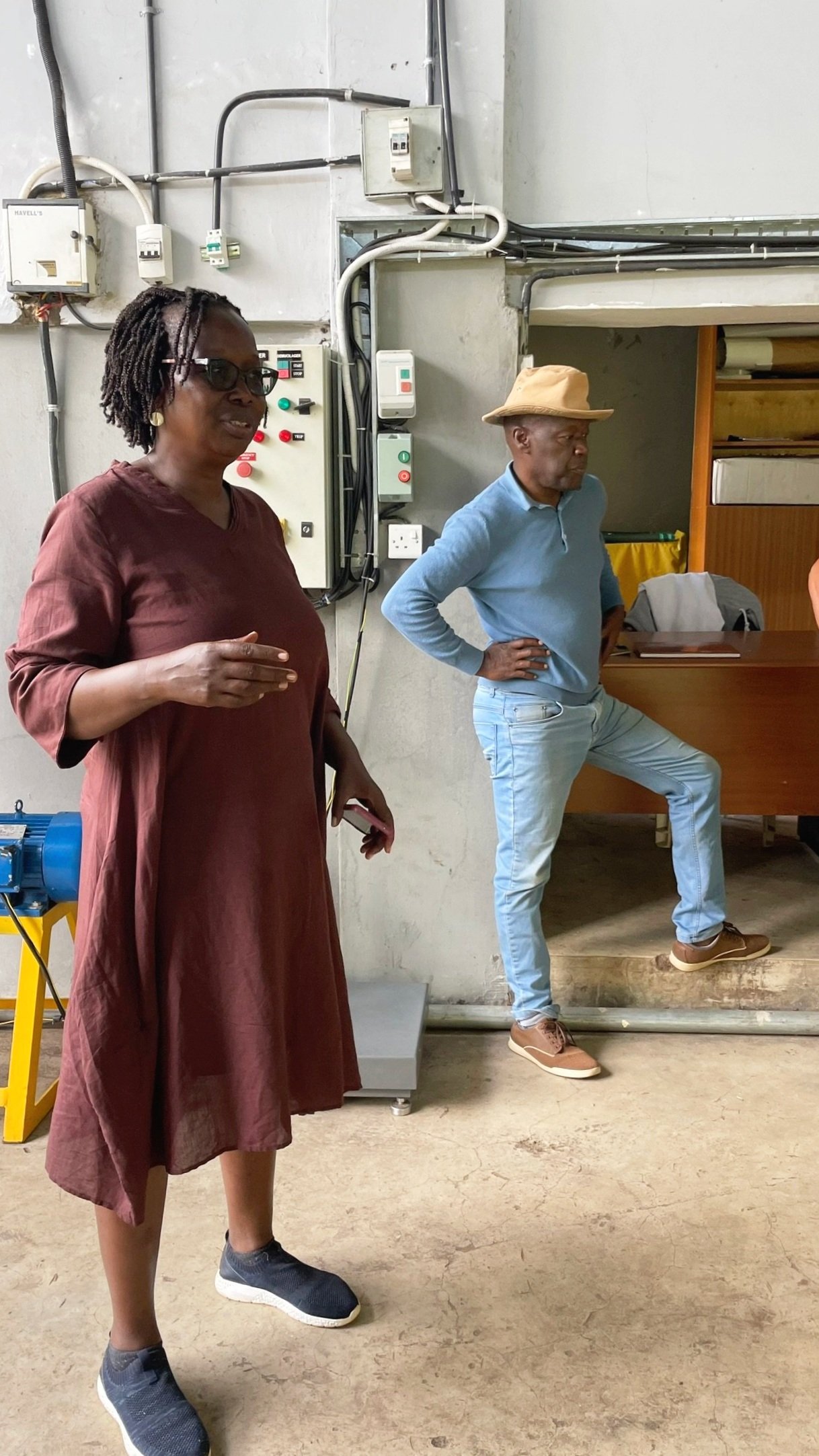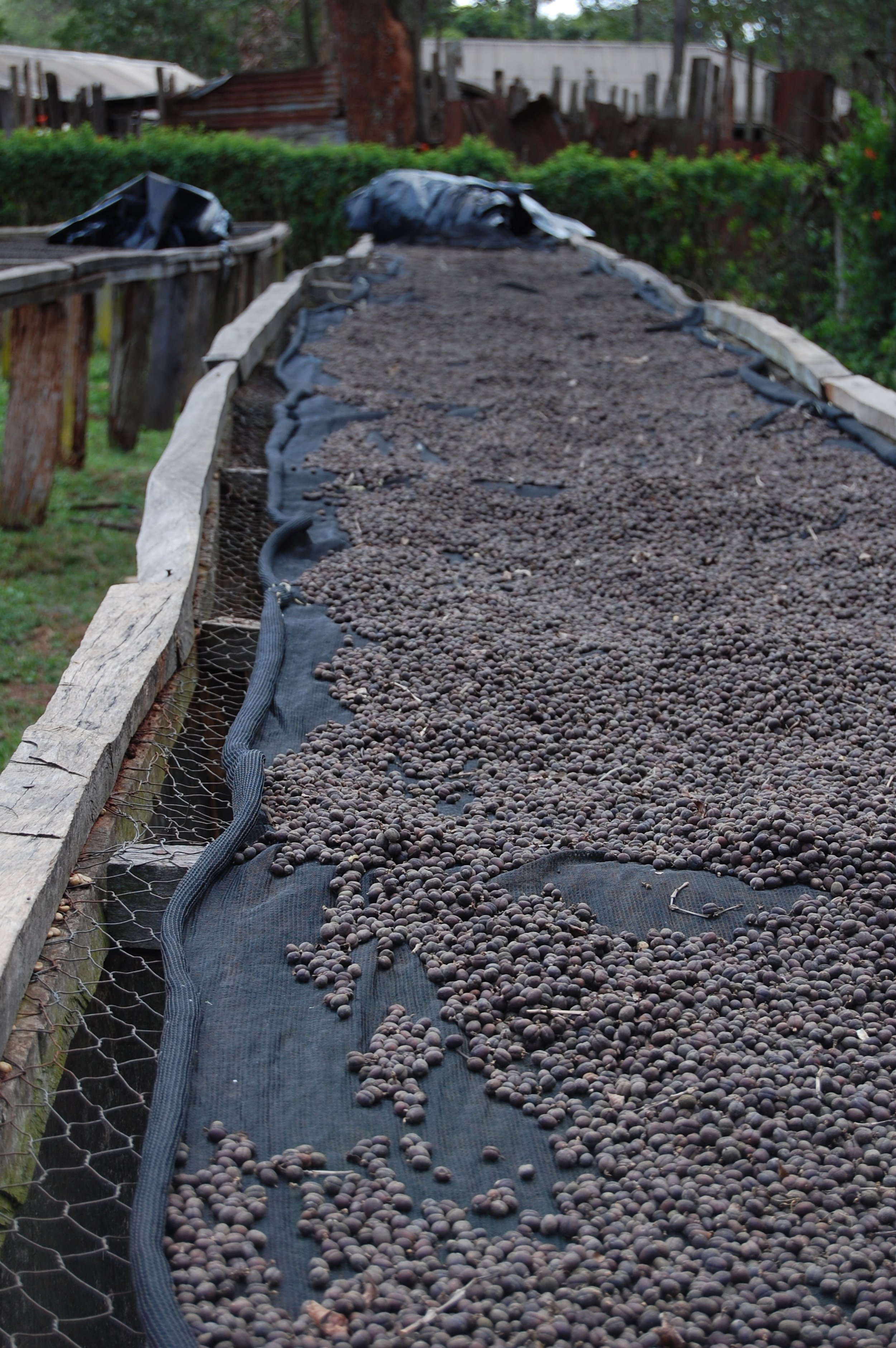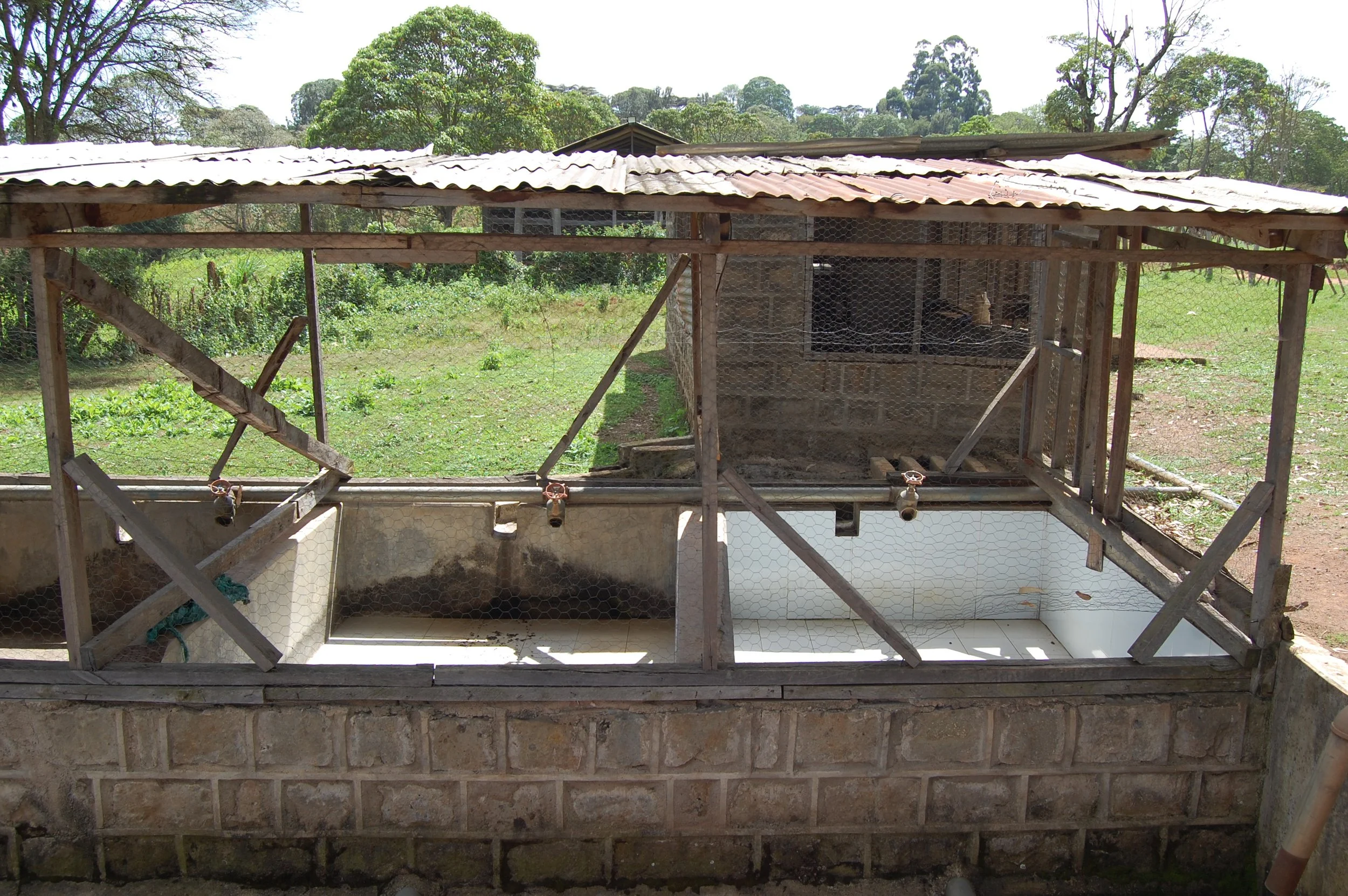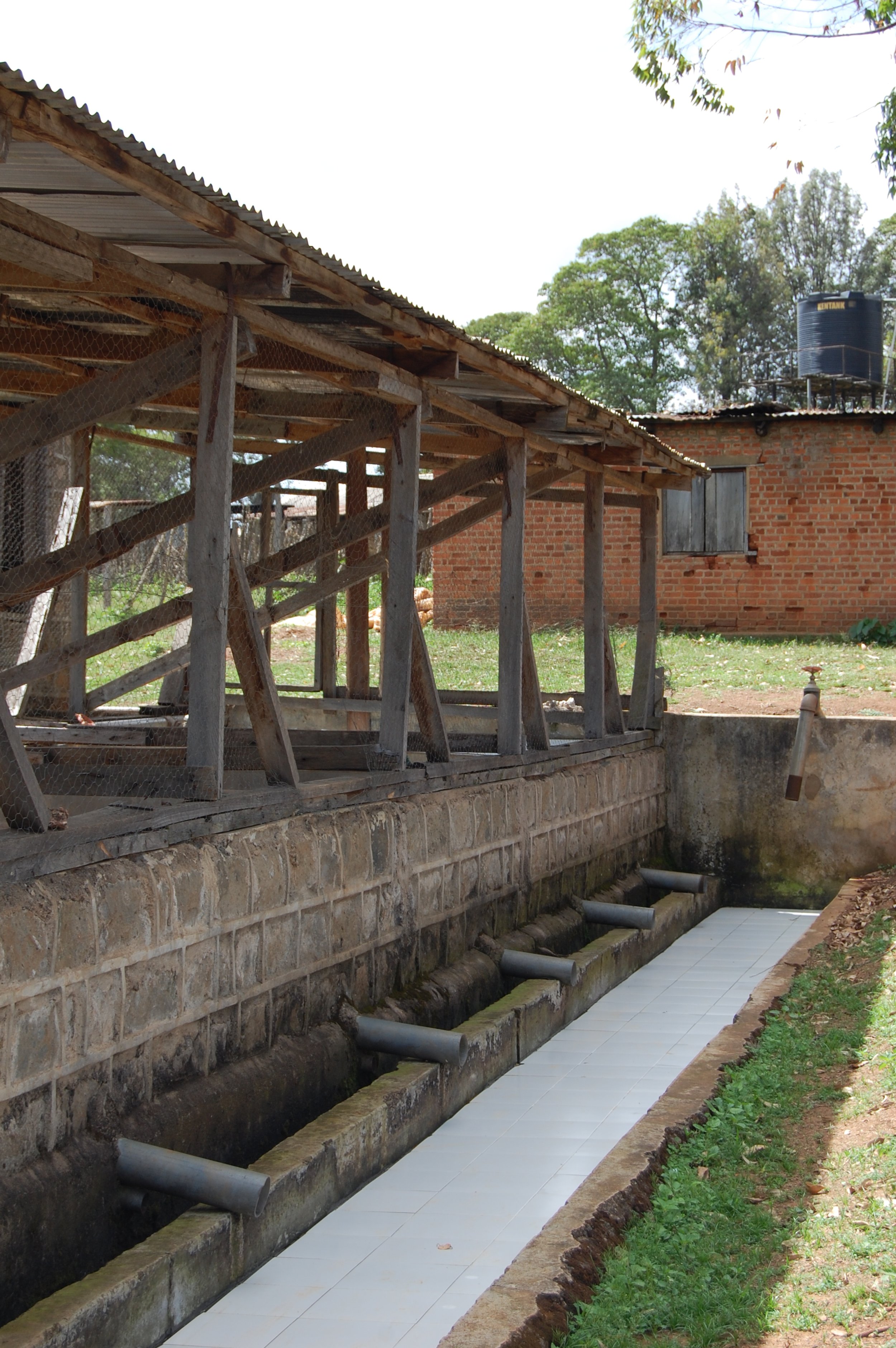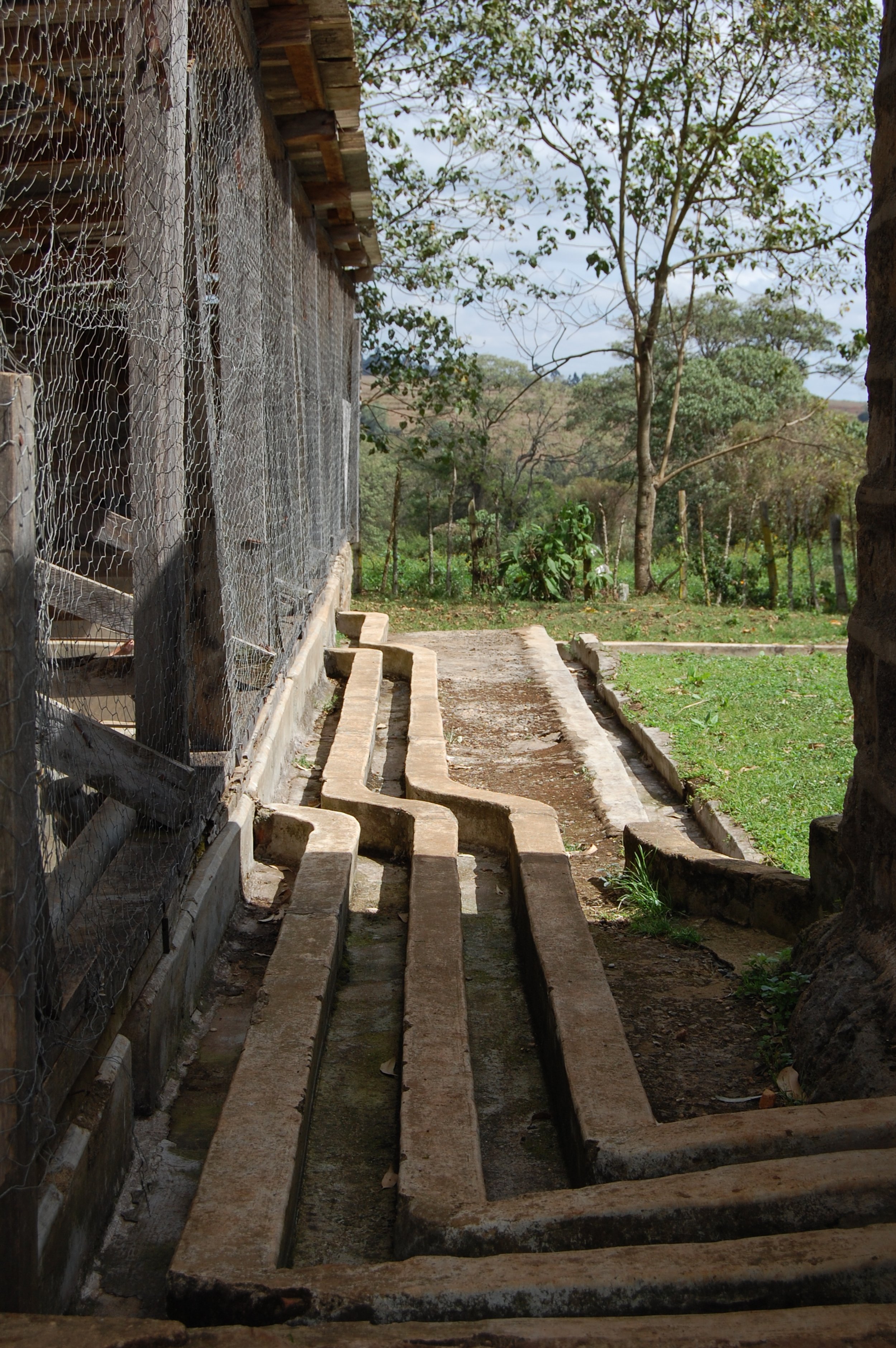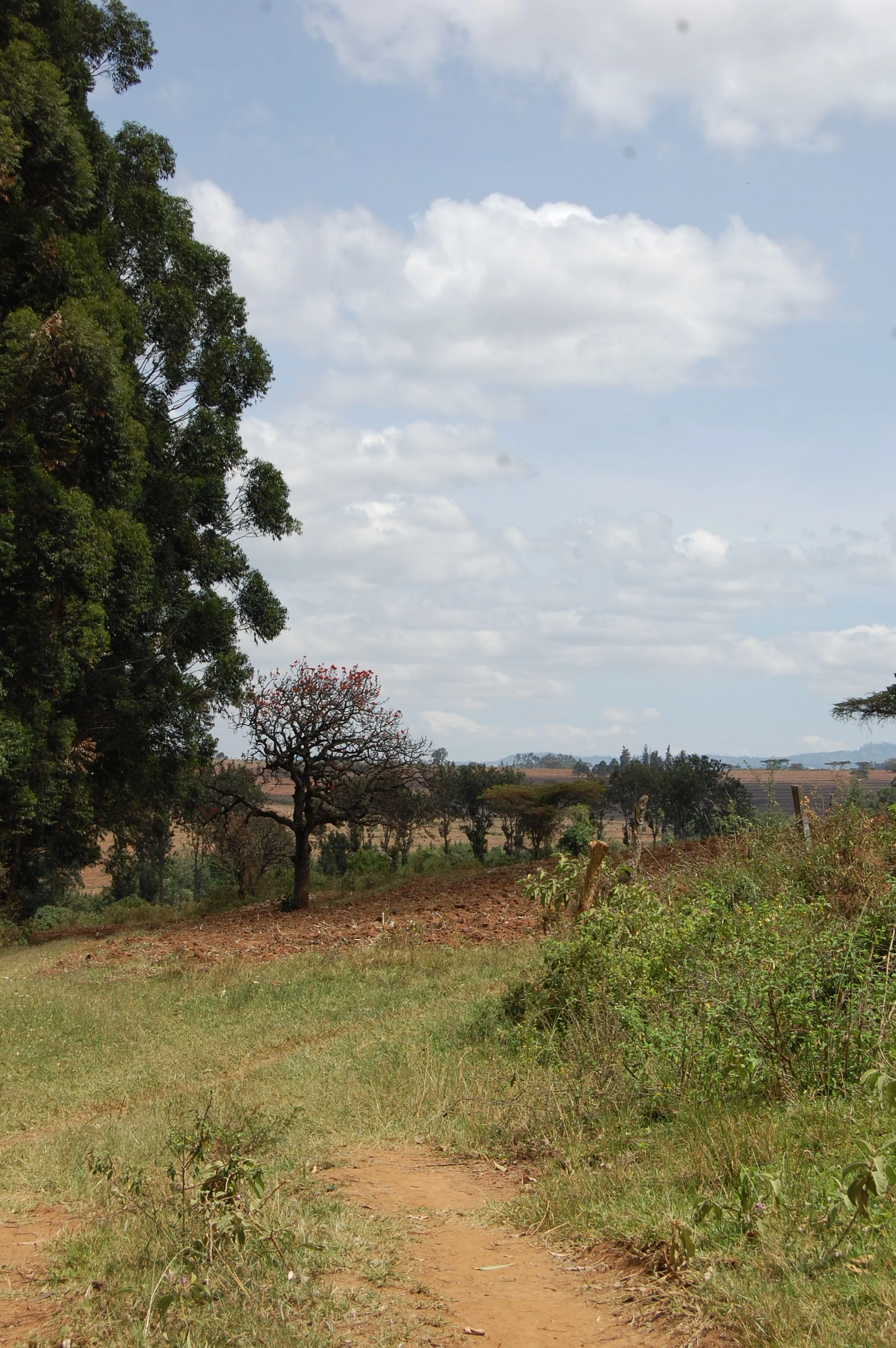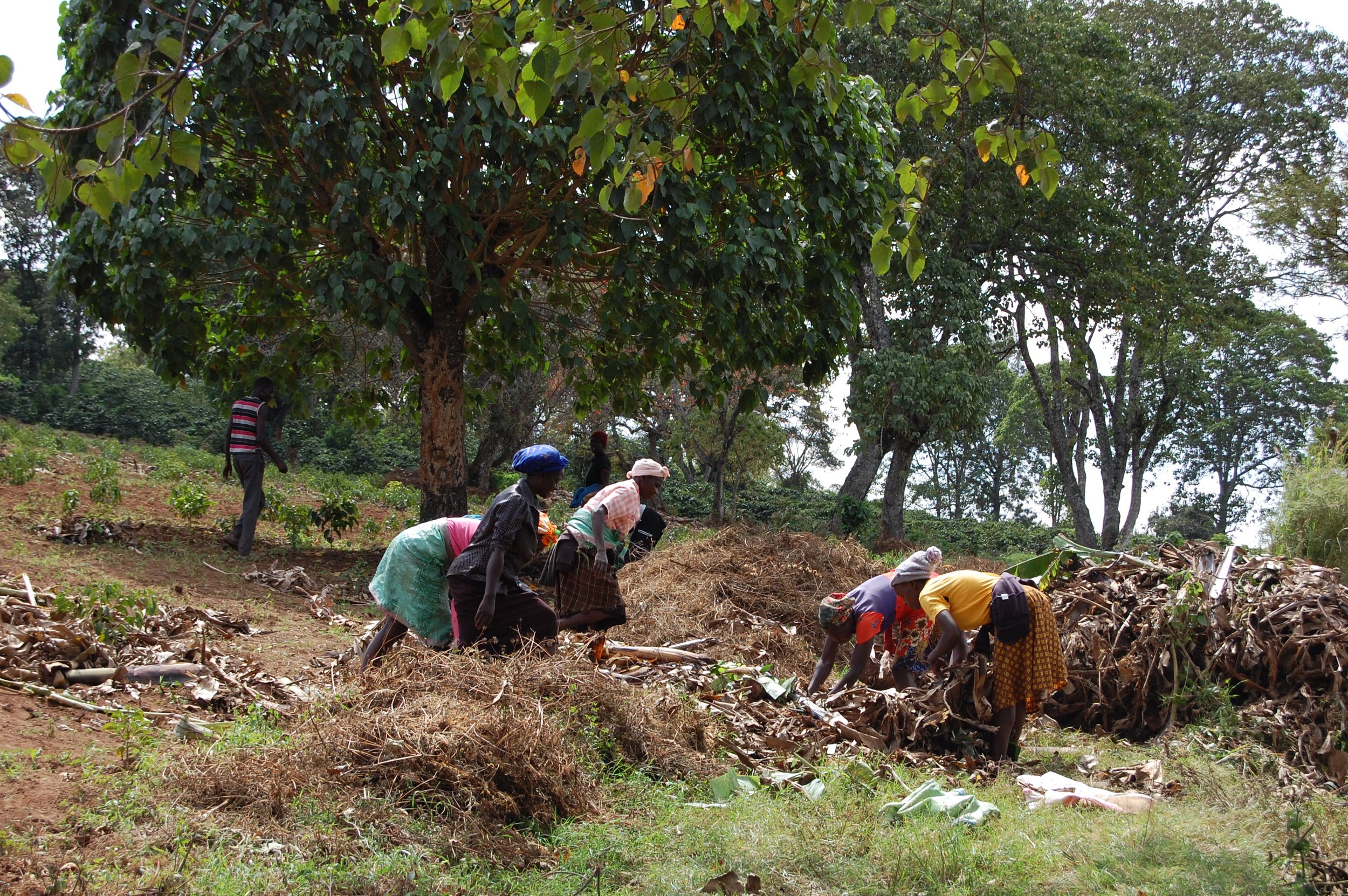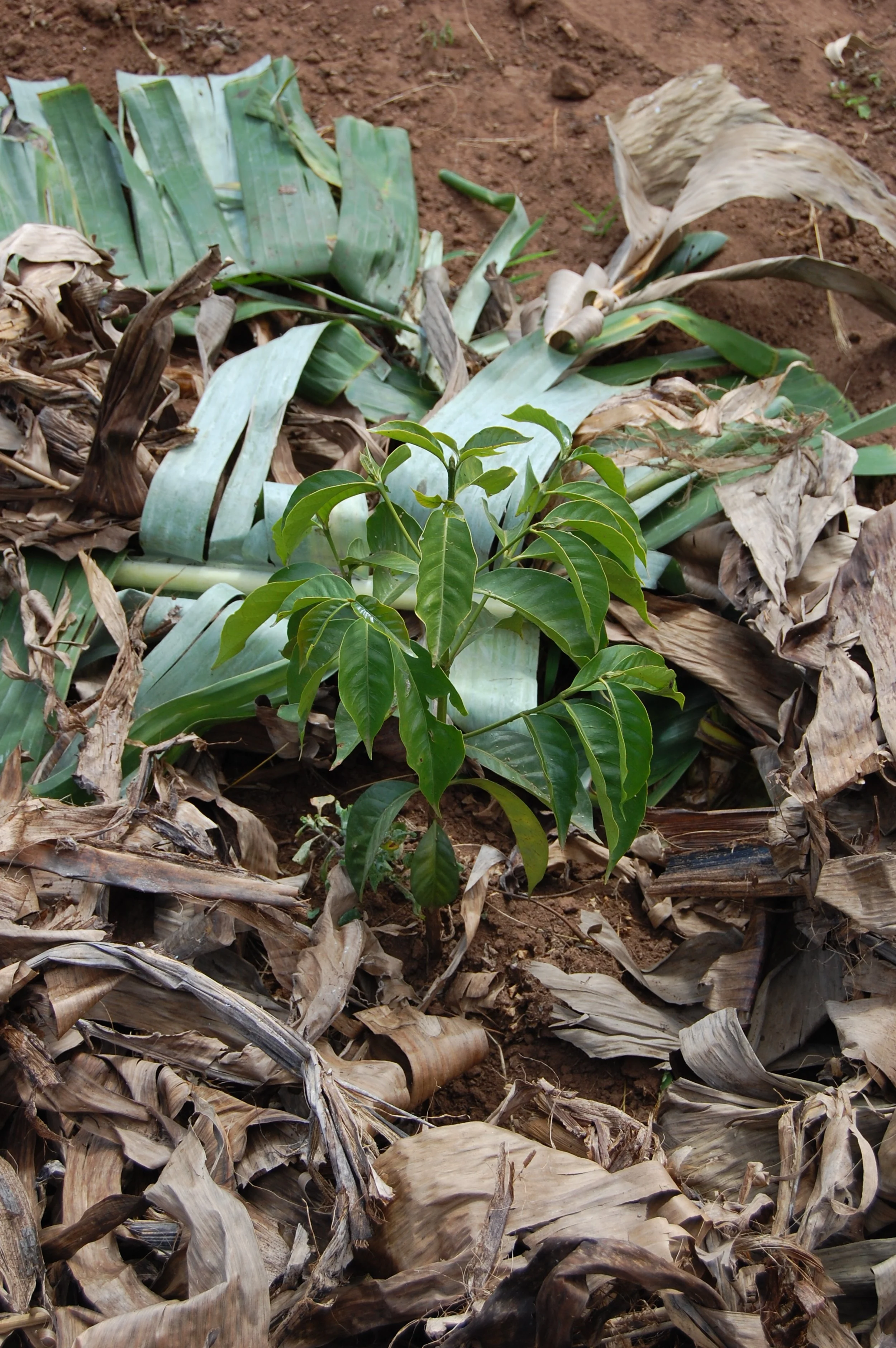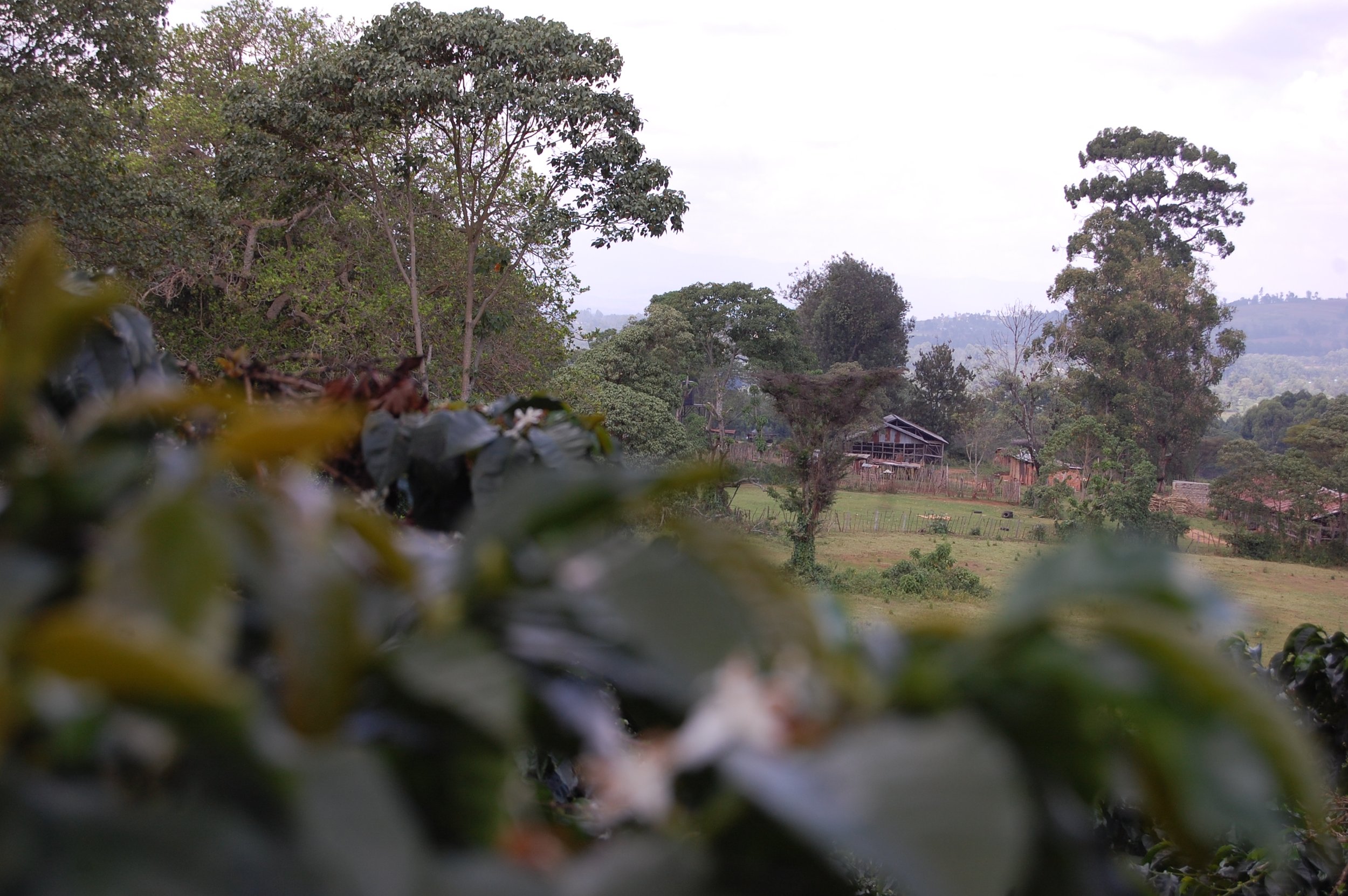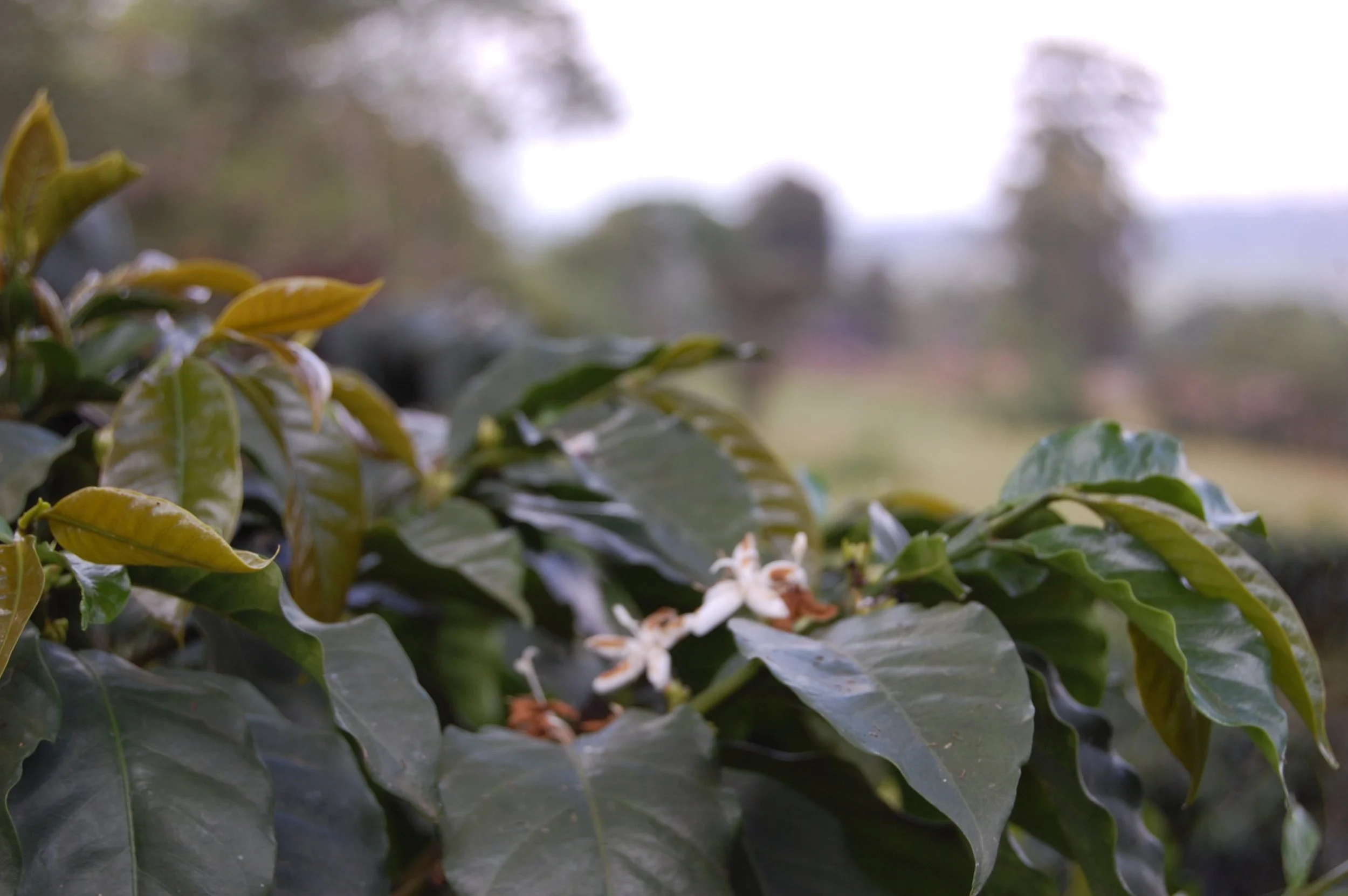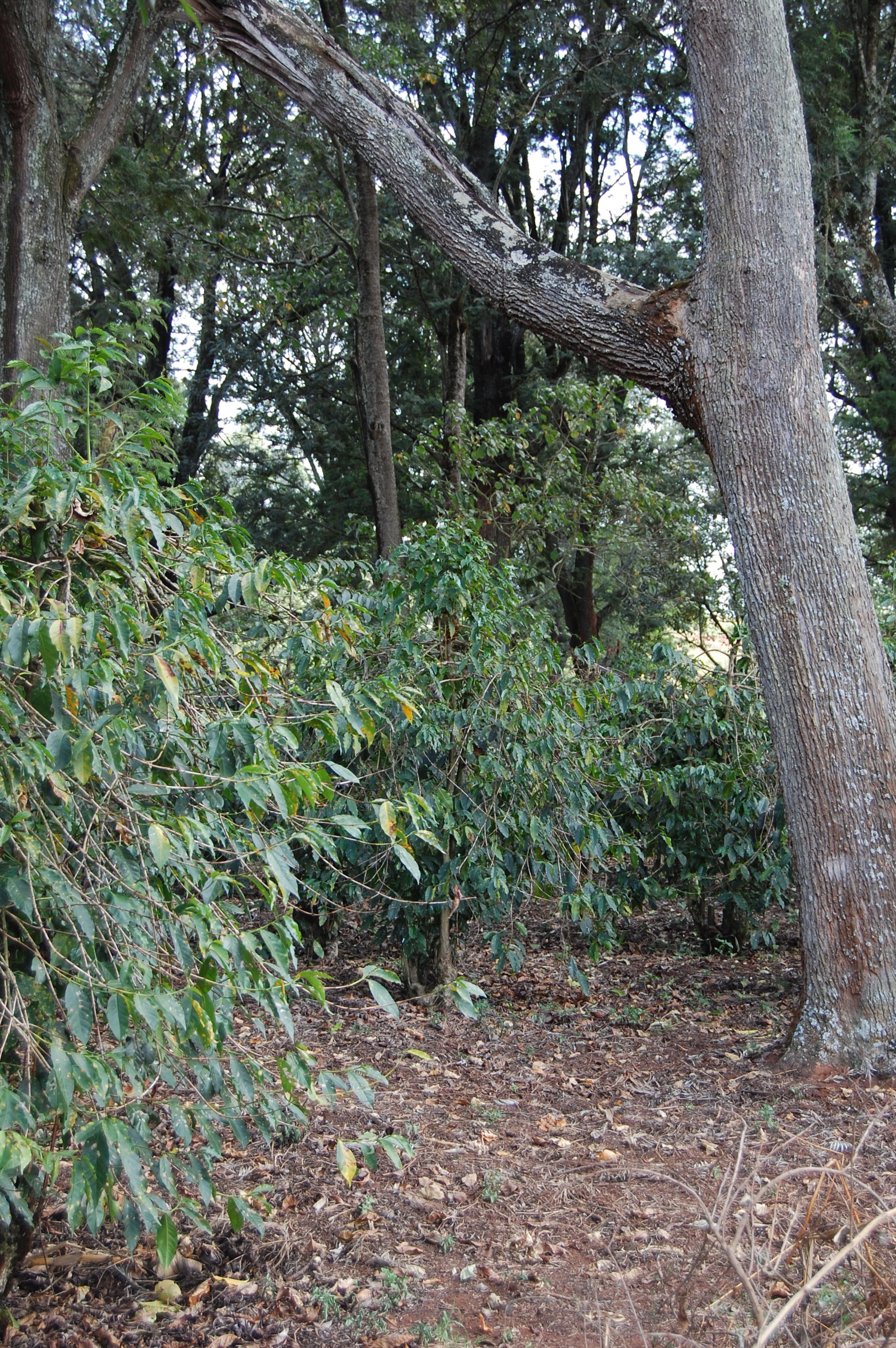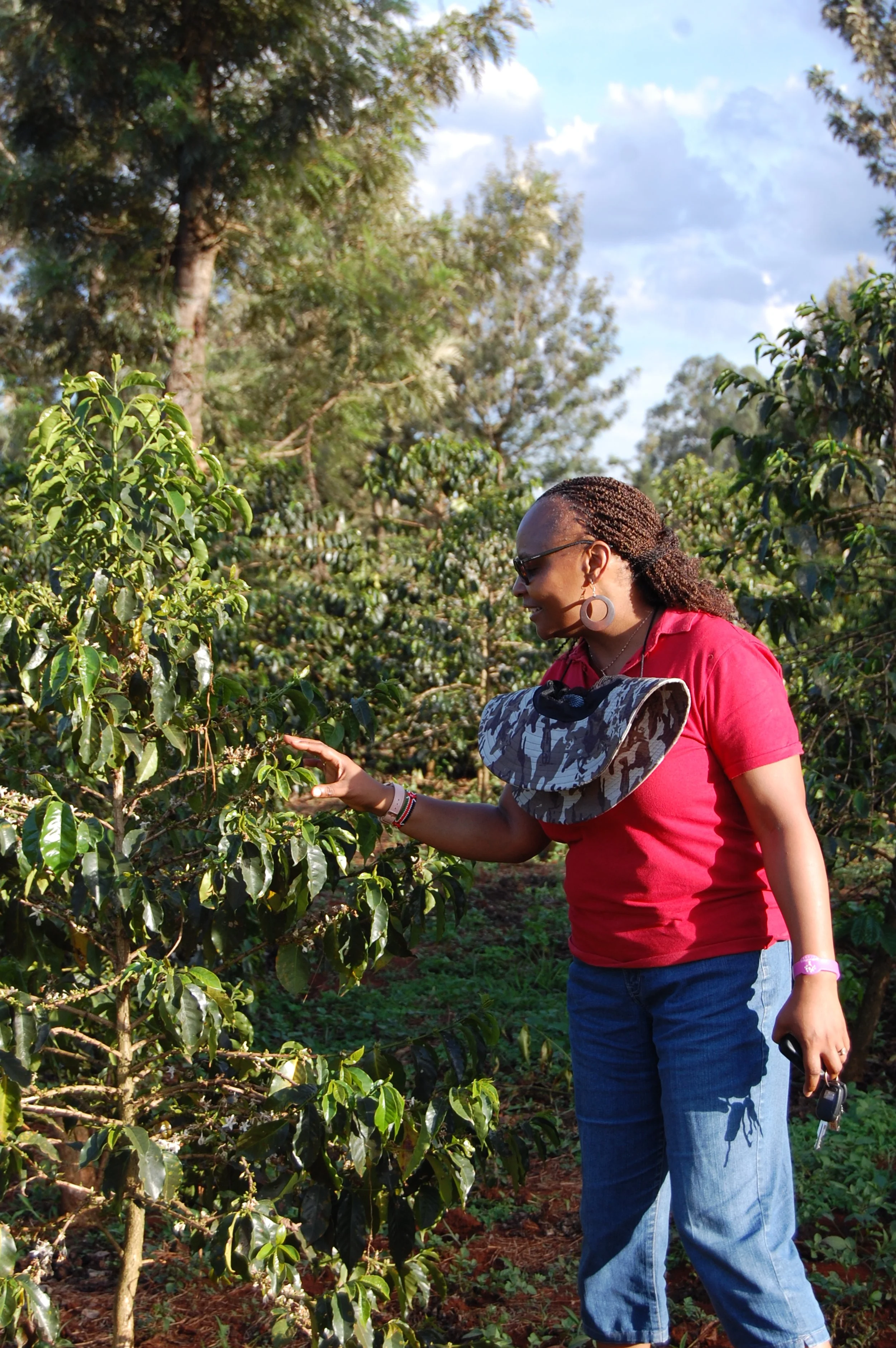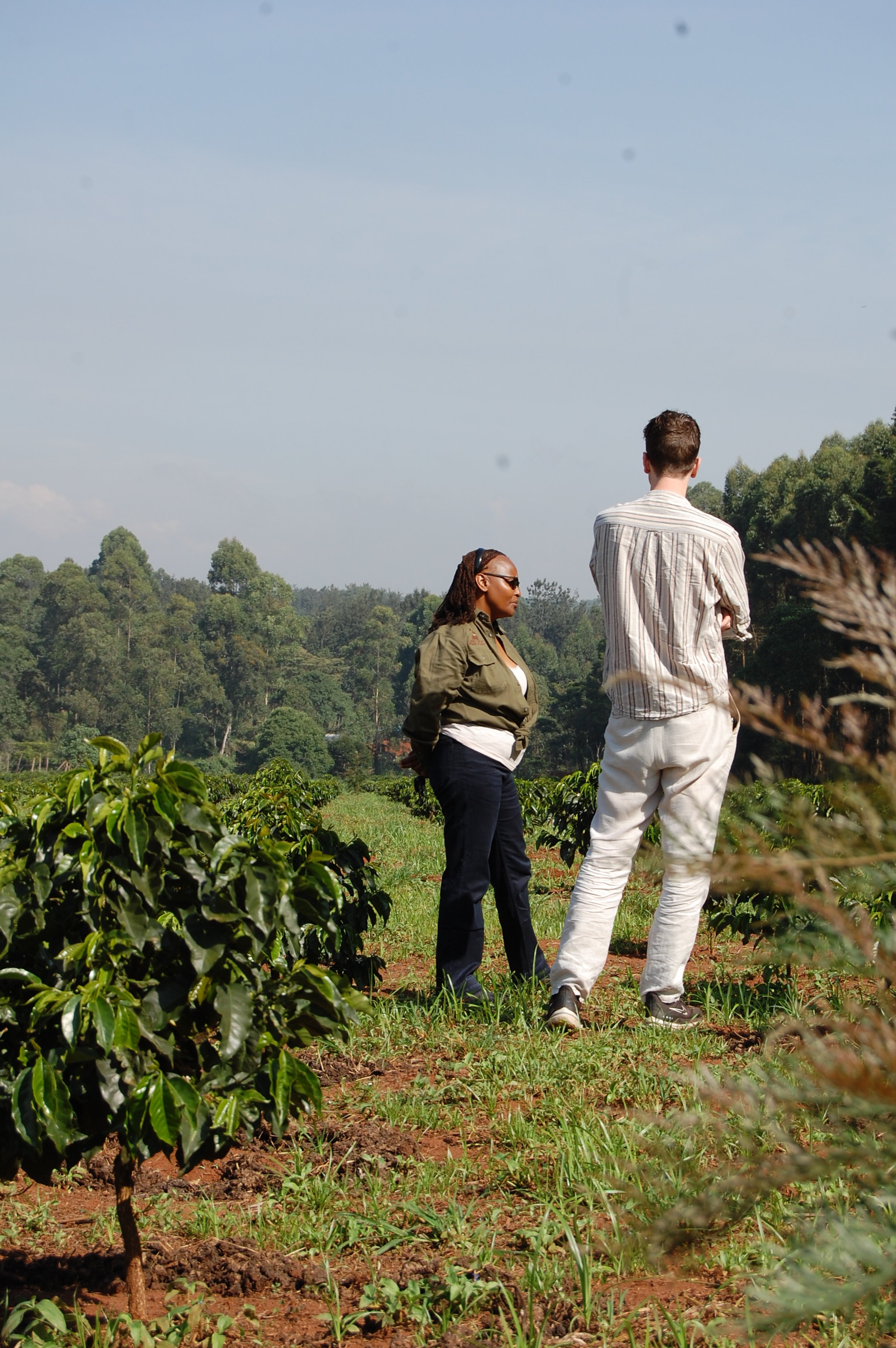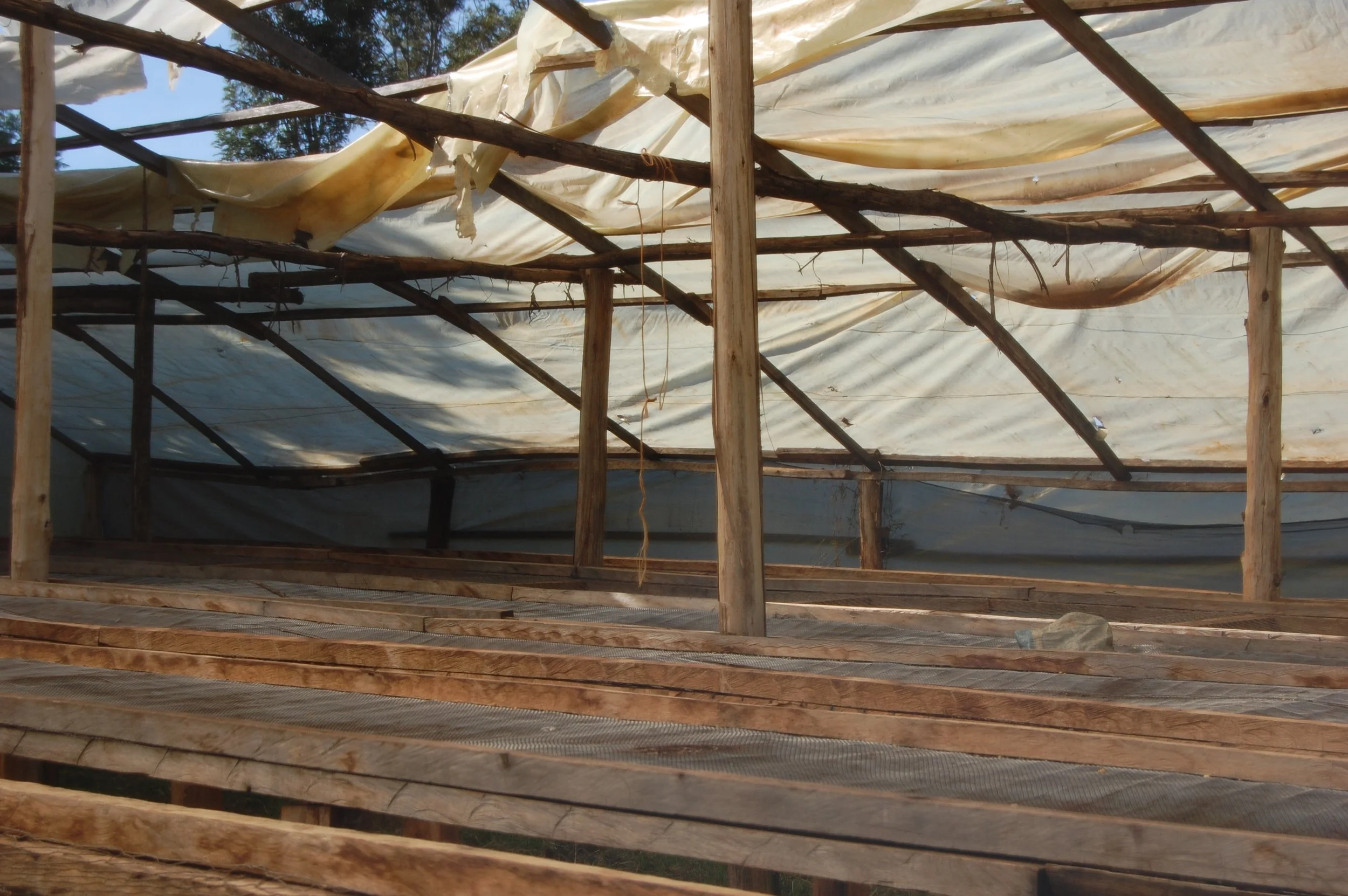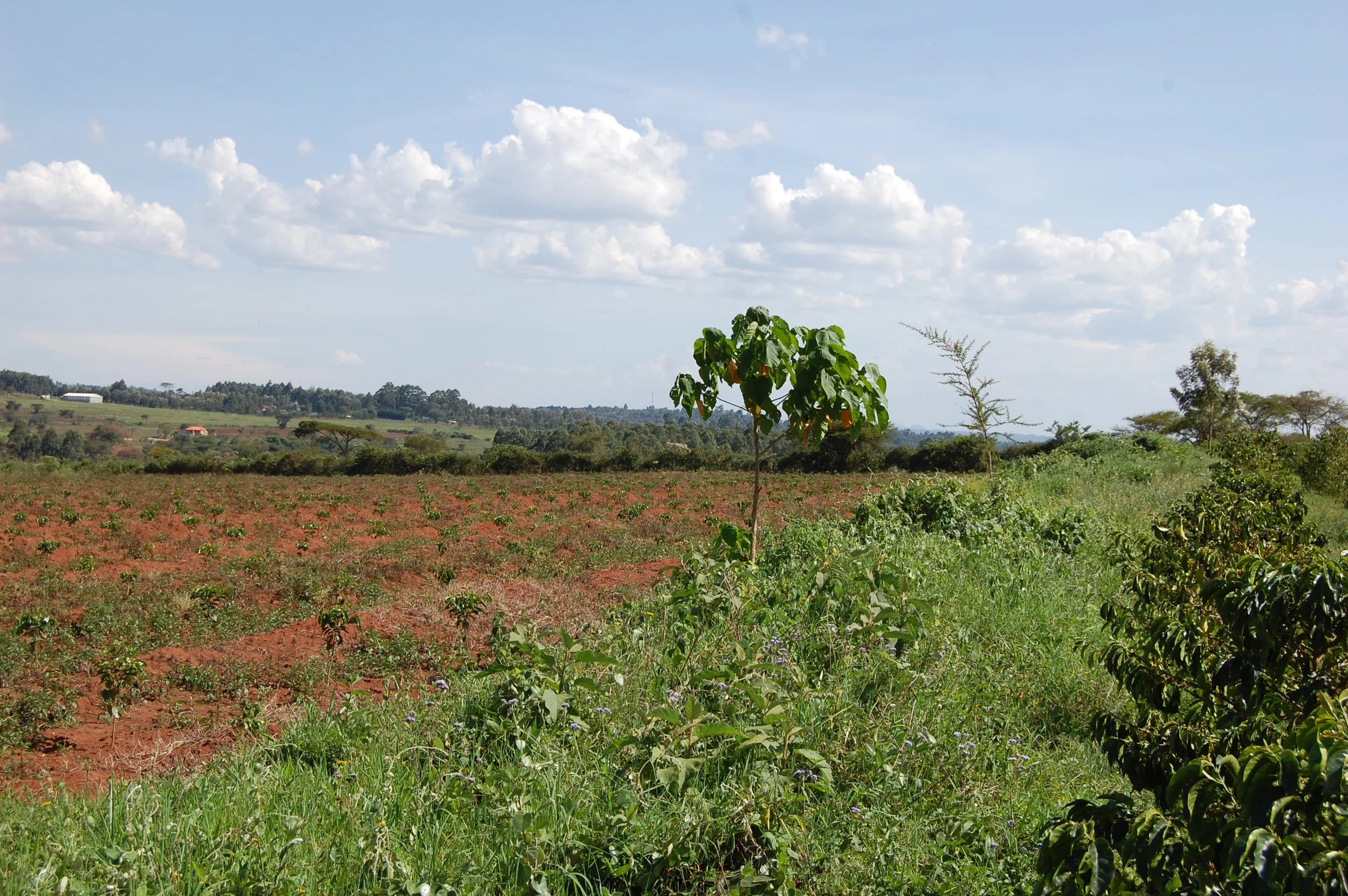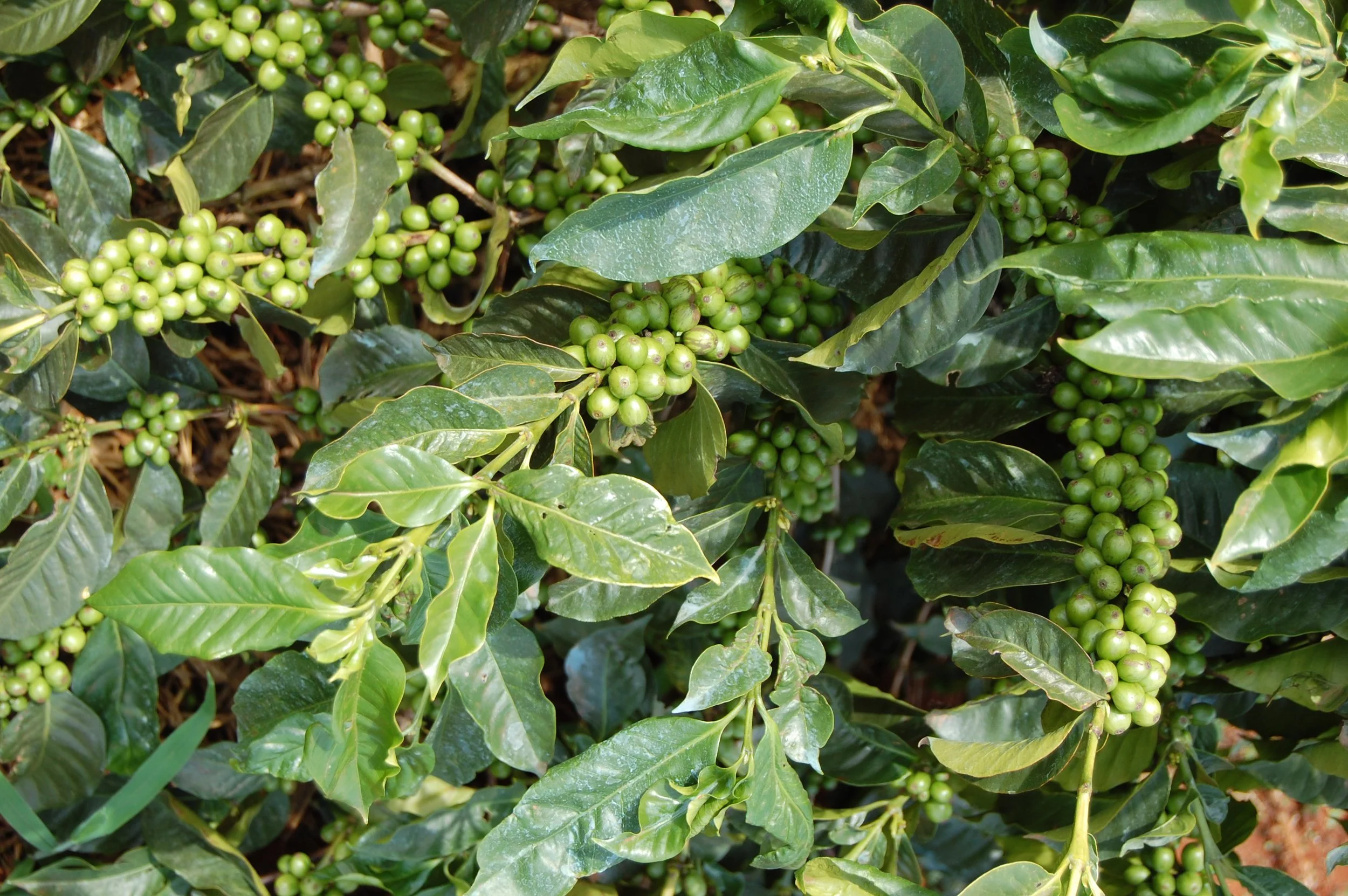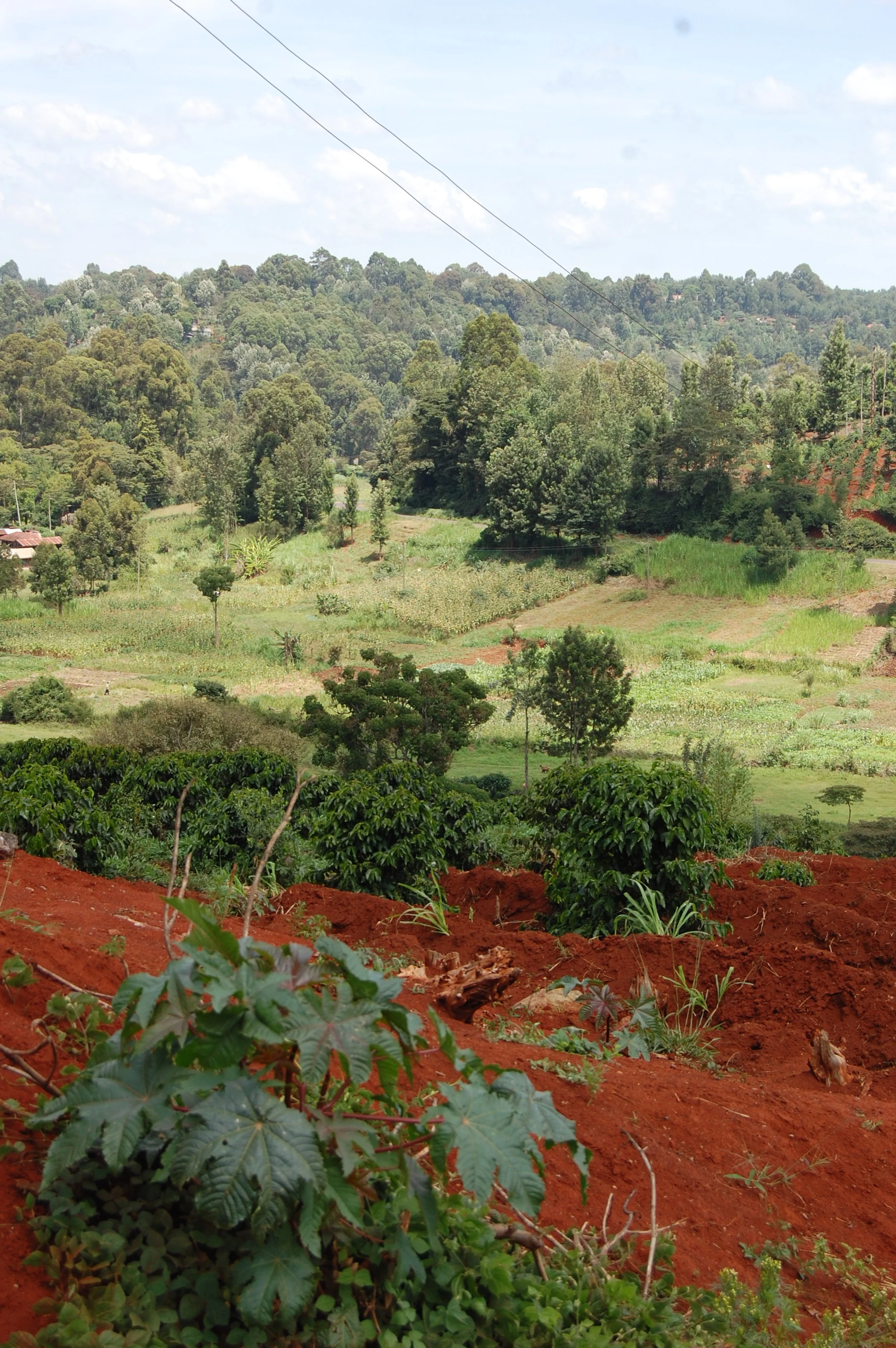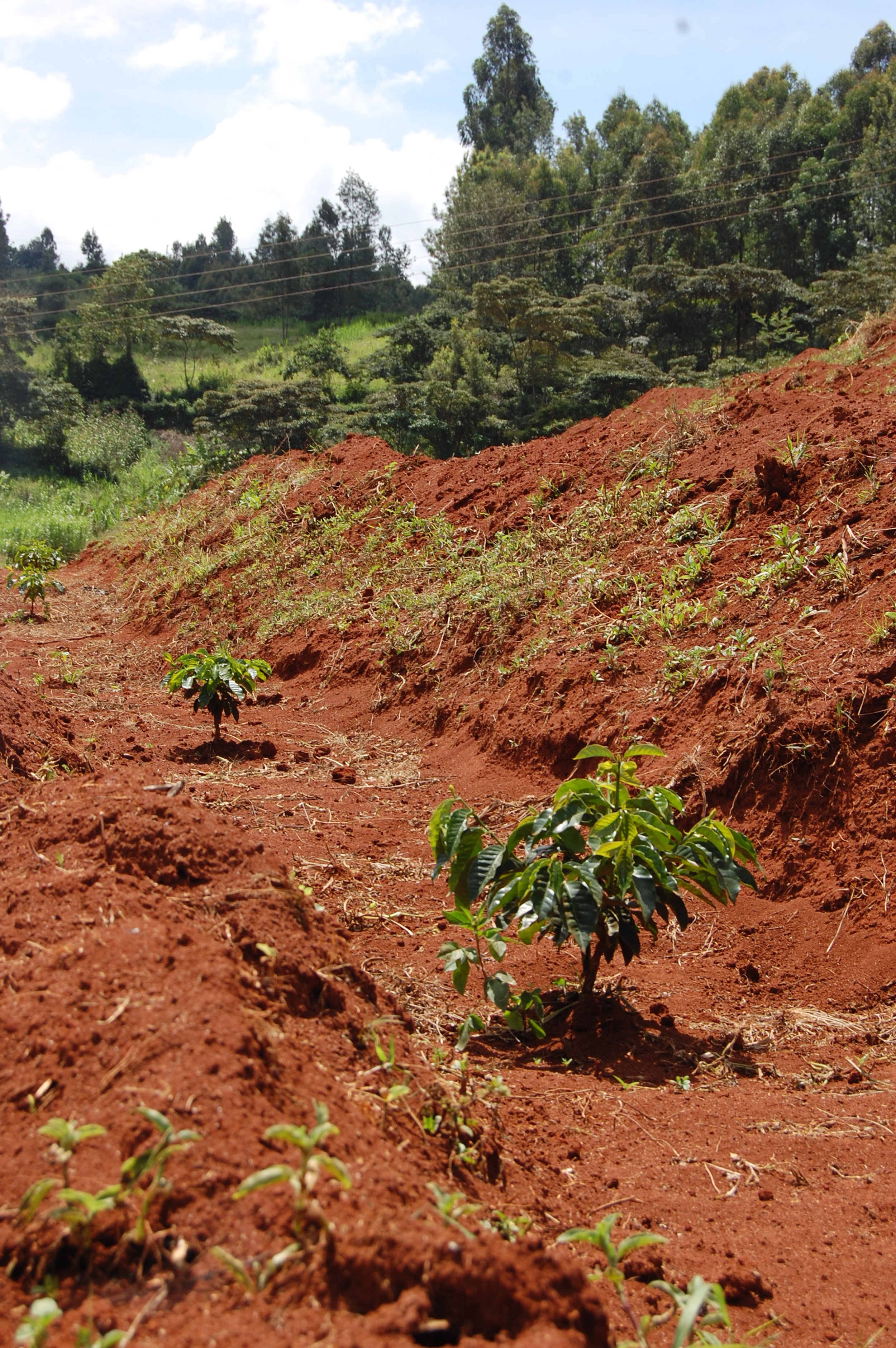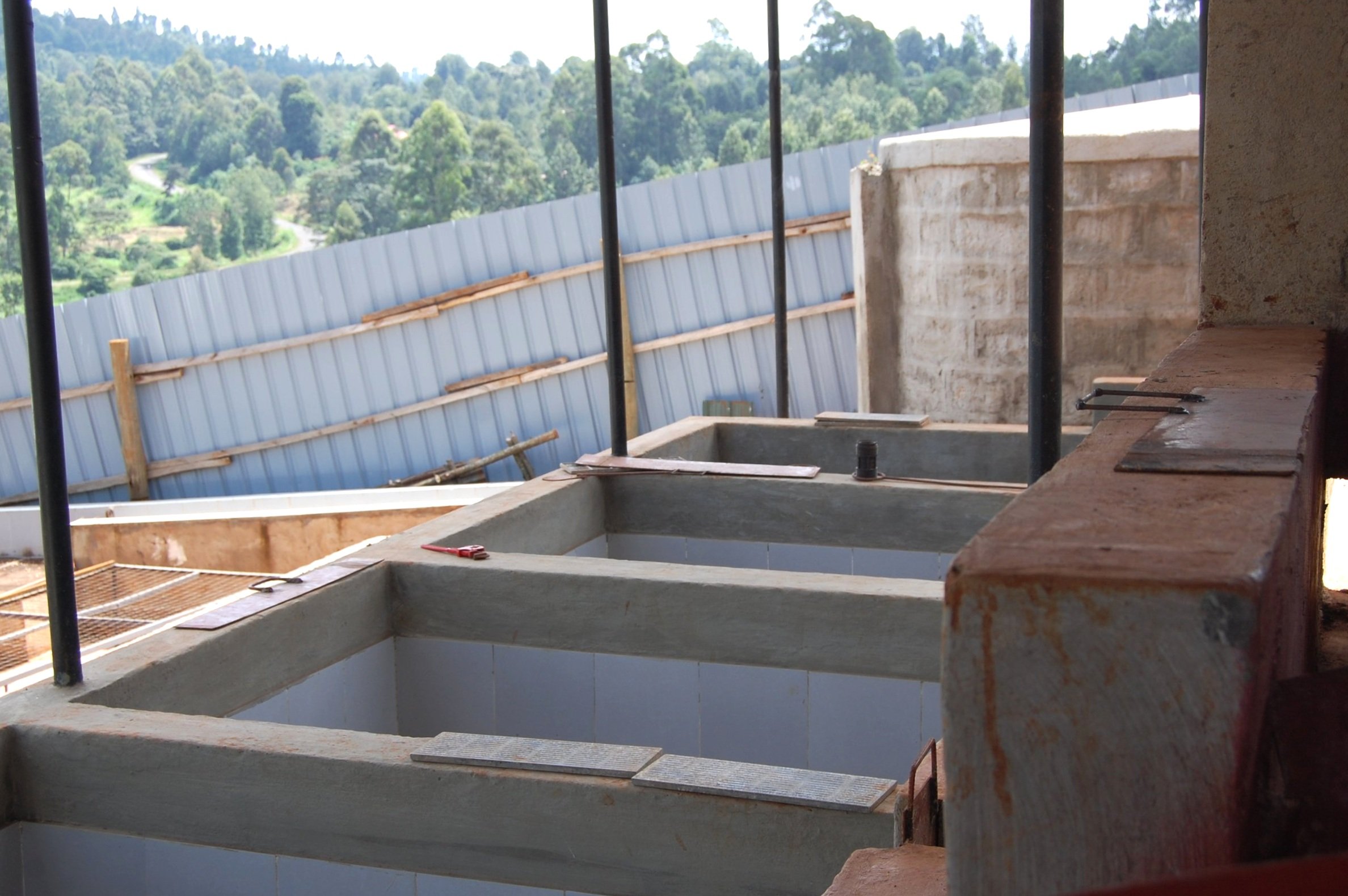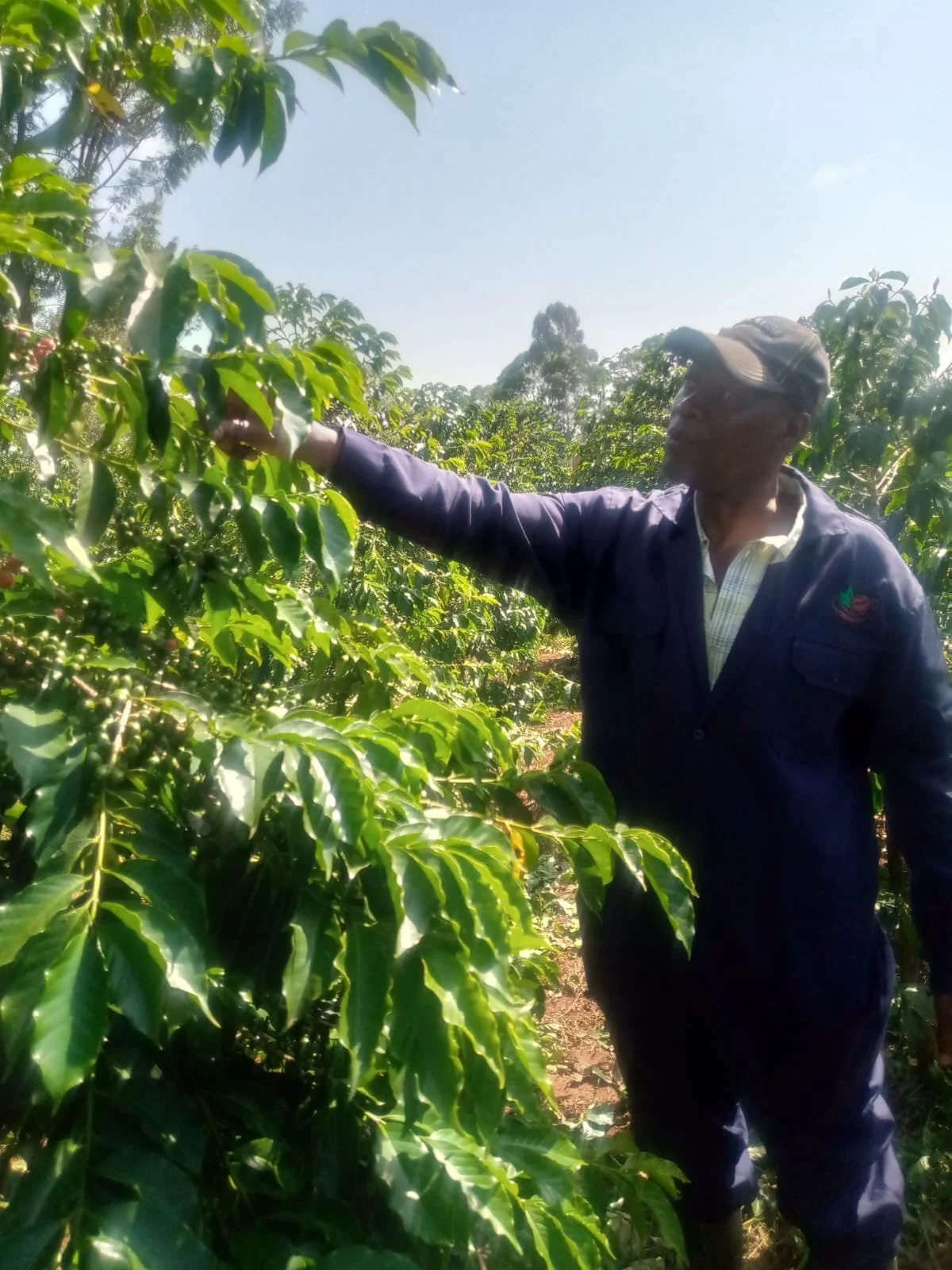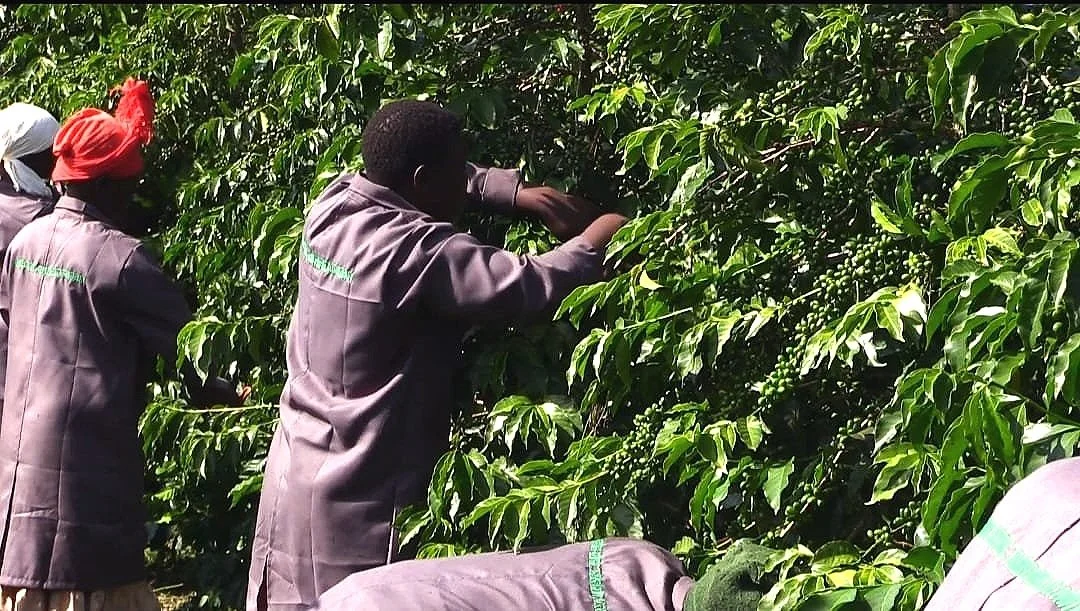The birth of a women's group
Our relationship with Sakami goes back as far as the start of This Side Up. We met when both Sakami and TSU were still in their infancy, and we were both wandering through the World of Coffee in Rimini trying to make sense of the specialty coffee industry.
The truth was that for many years, we did not want to work in Kenya because we did not think our model of direct and transparent relationships would fit here. We knew that the industry normally pays high prices only to support an auction system that benefits middlemen. However, after this first meeting in 2013, Sakami and This Side Up kept meeting through common friends who knew we had a future together before we did. In 2020 this speculation became a reality when we started offering single farmer Kenyan lots that were fully traceable in an otherwise untransparent Kenyan coffee sector.
Farmers like Gloria and Jarmo are a special breed. They provide stable and fair employment to their communities, have very high agricultural and regenerative standards. They have an export license, meaning we can circumvent the system we didn’t want to support. And just so happen to have a huge network just waiting for an opportunity like the one we offered. This is how a medical doctor, a marketer, a banker, a beauty expert, and a development worker joined forces and came together: Susan, Dr. Rosabella, Jane, Gloria and Mary Tonje. Five progressive women committed to offering their very best and to grow coffee with the people from the region and to find a way to empower the farmers that have been chained to underpaid jobs for generations. Over the years, the list of women working with Gloria has also been increasing. All with the intent to empower and be empowered through coffee trade.
We are proud to have been a catalyst for the formation of a new alliance of women, strong independent entrepreneurs whose coffees and faces have a permanent place in the TSU family.
These are the women that made the Sakami 2023-2024 season possible.
Click on their pictures to read their stories.
These are the women of the NORT Women’s Group. We call our coffees “Sakami” because it was through Gloria that this collaboration started, but we want to give an equal podium to all these independent entrepreneurs - everyone with their own farm, brand, company and export license.
Gloria and Jarmo
SAKAMI COFFEES
hectares: 120
trees: 90,000
Dr. Rosebella
CHEPSANGOR COFFEE
hectares: 18
farmers: 127
Tonje Family
CARAVIANEL COFFEE
hectares: 3-4
trees: 8,400
Susan
SAMWA COFFEE
hectares: 9
trees: 12,000
part time farmers: 100 (of which 90 are women)
full time farmers: 16 (of which 14 are women)
THIS SIDE UP VALUE CHAIN
Sakami Coffee works with surrounding coffee farmers (mainly from women cooperatives) to farm and dry their coffees. They manage to keep tight control over the whole export process by simply contracting the dry mill and selling their green beans directly to us.
TRACEABILITY
You can find all the signed contracts and shipping documents that we made with Sakami since 2021 below (Google Drive).
Key ACHIEVEMENTS
2021: first and successful crowdsourcing campaign to import 100 bags from Sakami to Rotterdam.
2022: Gloria expanded our cooperation to four other women-run farms and met many of them at the World of Coffee in Milan. The women’s group was officially recognised by the International Women's in Coffee Alliance as a new chapter: The North of the Rift Women In Coffee. Sakami bought 3100 native trees from our regenerative premium to make a buffer zone between the coffee and a nearby stream, provide wind breakers, protection against soil erosion and enhance the aesthetics of the farm.
2023: Gloria’s visit to Europe to meet the people behind the buyers of their coffee, those buying and telling their story. “It was a humbling experience as a farmer” said Gloria. Two additional members joined the NORT group, Shantelle and Sophie. Registration of a community based organisation under NORT to accommodate the local community.
2024: Finally, the TSU team visited Sakami after three years of partnership, as well as all the other women under the NORT umbrella.
Rosebella Single Farmer lot - washed 2022-2023
RECOMMENDED IKAWA PROFILE
We found it rather hard to find a universal profile for our washed Kenya on Ikawa. Working only with a hot air for such type of coffee feels tricky sometimes as often the result is both underdeveloped and overroasted at the same time. West Kenya feels tamed with ‘Washed Africa’ profile, it develops beans enough to see potential and difference between lots.
Naturals and anaerobics are easier to control. “Natural Africa” profile proves to work for most African naturals. As a rule of thumb: high drop temperature and rather short DT does the trick for fermented lots.













